March 12, 2014 (Sochi, Russia) – Brian McKeever is certainly capturing the world’s attention in Sochi, Russia. And it is not just because he skied to his ninth Paralympic gold medal on Wednesday in Sochi, Russia.
McKeever and guide, Graham Nishikawa, ploughed through the field and more than 30 centimetres of fresh snow to win their second gold medal of the week in spectacular fashion in the visually impaired sprint races at the Paralympic Winter Games.
![Brian McKeever (l) and his guide Graham Nishikawa win gold despite a crash at Sochi 2014 [P] Matthew Murnaghan/Canadian Paralympic Committee Brian McKeever (l) and his guide Graham Nishikawa win gold despite a crash at Sochi 2014 [P] Matthew Murnaghan/Canadian Paralympic Committee](http://skitrax.com/wp-content/uploads/2014/03/McKeever2.jpg)
Leading all qualifiers in the head-to-head heats with the top-12 athletes, the two Canadians handily advanced to the final where the 12-time Paralympic medallist faced the biggest adversity of his career.
Stacked against two Russians, and a Swede in the final, the 30-year-old Nishikawa (Whitehorse) appeared to have led McKeever (Canmore, Alta.) through the cluttered pack of guides and athletes into clear trail until the unthinkable happened near the 200-metre mark.
A Russian skier stepped on McKeever’s pole – sending the 34-year-old airborne and onto his backside – before bouncing back up and hunting the leaders, and his ninth career Paralympic gold medal down.
“Wow, that was stressful,” sighed McKeever at the finish. “It wouldn’t be right for me to tell you what I said in my head, but once the cuss words were out, the only thing you can do is get back up and race.
“I thought we were clear, but that is normal and it happens in sprinting when you are all fighting and tight. Everyone is going flat out. It is intense and everyone is at their limit. We are just fortunate it happened in the first 200 metres and not at the end so we had time to catch up.”
After taking a deep breadth, Nishikawa took control, putting the throttle down and commandeering the Canucks back into contention in the action-packed one-kilometre sprint race.
“When I saw him go down, I immediately panicked and just thought ‘OH NO! Not now,” said Nishikawa. “It wasn’t until we got back up around the Russians and had the Swedes in sight that I felt a huge relief.”
“What a set of wheels on Graham today. That was impressive,” said McKeever. “The snow was so heavy today. He basically towed me up that hill and got me around the Russian roadblock out there and gave us a chance. It is not how we planned things, but that was a pretty awesome day.”
![Brian McKeever (l) and his guide Graham Nishikawa win the gold medal in the Men's 1km Sprint Visually Impaired Final [P] Matthew Murnaghan/Canadian Paralympic Committee Brian McKeever (l) and his guide Graham Nishikawa win the gold medal in the Men's 1km Sprint Visually Impaired Final [P] Matthew Murnaghan/Canadian Paralympic Committee](http://skitrax.com/wp-content/uploads/2014/03/McKeever.jpg)
Sweden’s Zebastian Modin hung on for the silver medal, while Russia’s Oleg Ponomarev outraced his countryman for the bronze.
Adding to the dramatics, it was the first time Nishikawa had guided his friend, and training partner, on his own in international competition. After racing together over the last decade in Canada, McKeever recruited Nishikawa into his training group this fall with the goal of bringing two guides to the Paralympics for the first time ever.
Earlier this week, Nishikawa, who races able-bodied both domestically in Canada and on the World Cup circuit, shared guiding duties with Erik Carleton to lead McKeever to his first gold of the 2014 Games. Recognizing the stress the warm weather, and heavy snow conditions was putting on the guides for the long-distance races, the innovative Canadians leveraged both guides – switching at the midway point. With McKeever dropping into third place, Nishikawa stepped in to blaze a trail to the gold medal step of the podium.
Carleton’s name was on the start list so he was the only one to receive a gold medal. But on Thursday, Nishikawa will get his due and receive a gold medal of his own.
“It feels absolutely awesome,” beamed Nishikawa. “I said earlier this is a whole new world for me. I’m so impressed by everything. This whole experience has been amazing and I just wanted to do whatever I could to be here and help Brian. We have been friends for a long time so this is very special.”
From sunny t-shirt weather, to pouring rain, to dumping heavy snow on Wednesday, Mother Nature is sending the world’s top Para-Nordic wax technicians into a daily frenzy at Laura Stadium.
“These conditions are definitely stressful on the wax techs,” said McKeever. “Every day they basically start from ground zero based on the conditions. We had amazing boards today and the guys deserve a lot of credit. We were so fast on the downhills which really got us back into the race today.”
The victory brings McKeever’s career medal haul to 12 at the Paralympics, including his nine gold. If he can chalk up one more victory this week he will become the first Canadian Winter Paralympian with at least 10 gold medals, and third Paralympian in Canada overall to accomplish the feat.
![USA's Tatyana McFadden wins silver XC Sprint at Sochi 2014 [P] Buzz Covington](http://skitrax.com/wp-content/uploads/2014/03/McFaddenSprint_BuzzCovington.2.jpg)
American Paralympic superstar Tatyana McFadden (Clarksville, Md.) added another accomplishment to her already storied Paralympic career by winning a silver medal in the 1-kilometer sitting cross-country race at the 2014 Paralympic Winter Games in Sochi.
McFadden finished the race with a time of 2:45.7, just 0.1 behind Norway’s Mariann Marthinsen who won gold in what was the most hotly contested and exciting race of the day at the Laura Cross-Country Ski and Biathlon Center.
Russia’s Marta Zaynullina was third with a time of 2:46.6 and American Oksana Masters (Louisville, Ky.) who already won a silver medal in these Games, finished fourth in the race with a time of 2:47.6. Of the four events Masters has competed in she has now finished in the top five of three of them. Canada’s Colette Bourgonje from Saskatoon also competed finishing 16th.
The race was close from start to finish and played out the way McFadden thought it would, which made sticking to her game plan incredibly important.
“I could not go easy, I needed to go hard from the start,” said McFadden. “I knew that they were coming and I could feel them down my neck. It was a good race.”
This is the 11th Paralympic medal of McFadden’s career but her first ever Paralympic Winter Games medal. McFadden, who is competing in her first ever Paralympic Winter Games also has 10 Paralympic medals in track & field.
Perhaps more interesting than McFadden winning a medal however, is that it comes just less than one year after taking up the sport of Nordic skiing.
John Farra, who serves as the head of the U.S. Nordic skiing program and recruited McFadden to the sport was quick to emphasize how incredible it is for an athlete to medal on the world’s biggest stage after just picking up the sport.
“It’s pretty amazing for Tatyana to be able to finish what she started…taking someone from a summer sport and putting them in a sit ski and teaching them to ski effectively and try to have them win a medal for you is a tough task in just one winter of skiing,” admitted Farra. “I am psyched that it worked out, it was a really exciting race.”
McFadden now joins an elite group of athletes who own both summer and winter Paralympic medals, an accomplishment that had not yet sunk in at the end of today’s race. “I can’t even believe it. My main goal was just to come in and make it to the final,” noted McFadden. “I am just so happy and so proud.”
![Andy Soule [P] Getty Images](http://skitrax.com/wp-content/uploads/2014/03/Soule-477219641_10.2.jpg)
The U.S. also had a very successful day on the men’s side as both Andy Soule (San Antonio, Texas) and Lt Cmdr Dan Cnossen (Topeka, Kan.) both made it to the finals of the 1km sitting cross-country final. In another close race Soule finished fifth with a time of 2:38.0 and Cnossen was sixth with a time of 2:39.9.
Chris Klebl, of Canmore, Alta., qualified for the men’s sit-skiing heats, but did not advance to the final while Quebec City’s Sebastien Fortier, and Yves Bourque (Becancour, Que.) also did not qualify for the men’s sit-skiing heats.
Russian Roman Petushkov won the race, finishing in 2:29.4 as Team Russia increased their lead at the top of the medals table with more dominant victories in cross-country skiing as they continued their medal monopoly on home snow in Sochi.
Petushkov earned his fourth gold medal of the Games with a powerful finish in the men’s 1km sitting sprint. He went head-to-head with 19-year-old compatriot Grigory Murygin but Petsuhkov stormed ahead and across the finish line in 2:29.4. Murygin followed in 2:30.6 with Ukraine’s Maksym Yarovyi ruining the chances of another podium sweep as he beat Irek Zaripov in a time of 2:31.6.
It was the fourth top-five finish for Soule, an Army veteran, who continues to impress in these Games. It was also the best finish of the Games thus far for Cnossen.
For both Soule and Cnossen who have trained together and are roommates here in Sochi it was a special moment to race alongside each other in a Paralympic final. “I was glad to see him (Cnossen) make it into the final right there with me,” stated Soule. “We have a really awesome team, I love our team.”
Sweden’s world champion Helene Ripa failed to qualify for the semi-finals of the women’s 1km standing sprint, as she finished 15th in qualifying. In the final, Russia’s Anna Milenina was crowned the Paralympic champion with a time of 4:26.9.
Ukraine’s Iluliia Batenkova finished five seconds later in 4:31.4 and Russia’s Alena Kaufman claimed bronze in 4:31.7. Canadian Paralympic rookie, Brittany Hudak of Prince Albert, Sask., did not advance past the women’s standing semifinals.
In the women’s 1km visually impaired sprint, Mikhalina Lysova and Elena Remizova completed a Russian one-two with six seconds between the pair. Lysova finished in 4:11.5 with Rezimova crossing the line in 4:17.1. Ukraine’s Oksana Shyshkova earned a bronze medal with a time of 4:24.6.
Robbi Weldon, of Thunder Bay, Ont., along with her guide Phil Wood, of Canmore, Alta., also had their day come to an end in the semifinals while Ottawa’s Margarita Gorbournova and her Regina-based guide, Andrea Bundon, did not qualify for the heat
It was an all-Russian final in the men’s 1km standing sprint featuring Vladimir Kononov, Sergey Lapkin, Alexandsr Pronkov, Vladislav Lekomtcev, Rushan Minnegulov and long-distance Paralympic champion Kirill Mikhaylov.
Mikhaylov upgraded from the sprint silver he won in this event four years ago in Vancouver as he won the race in 3:53.5 with Minnegulov (3:53.8) and Lekomtcev (3:54.6) finishing behind him.
“I’m happy because this is a load off my mind,” Mikhaylov said.
“It was a Russian final and yes, it is hard to compete against my friends.”
Full results here.
![Marty Hall circa 1970s [P]](http://skitrax.com/wp-content/uploads/2014/03/Marty-Hall-70s.2.jpg) March 27, 2014 – It’s fun to think back or have a few quiet moments to think about the what-ifs. What if Kikkan [Randall] skied the whole TdS, which she missed, as did others, and we were to do some number manipulations. Was 3rd overall in the World Cup, which she achieved last season, possible. There are 30 WC races counting the TdS and Kikkan missed eight (8) scoring chances by not doing the TdS. Using her WC points/race average and applying it those 8 races, she would have finished 4th. But, no skiers on the women’s side did the whole Tour last year or this year. What this tells you – besides the fact that I just spent a couple of hours going back and forth from 2014 to 2013 – is that the skiers who manage themselves the best on the World Cup have fewer misses.
March 27, 2014 – It’s fun to think back or have a few quiet moments to think about the what-ifs. What if Kikkan [Randall] skied the whole TdS, which she missed, as did others, and we were to do some number manipulations. Was 3rd overall in the World Cup, which she achieved last season, possible. There are 30 WC races counting the TdS and Kikkan missed eight (8) scoring chances by not doing the TdS. Using her WC points/race average and applying it those 8 races, she would have finished 4th. But, no skiers on the women’s side did the whole Tour last year or this year. What this tells you – besides the fact that I just spent a couple of hours going back and forth from 2014 to 2013 – is that the skiers who manage themselves the best on the World Cup have fewer misses.




![Teams celebrating on the podium. [P] Rob Whitney Teams celebrating on the podium. [P] Rob Whitney](http://skitrax.com/wp-content/uploads/2014/03/Podium-1118.jpg)
![Kikkan Randall celebrates victory. [P] Rob Whitney Kikkan Randall celebrates victory. [P] Rob Whitney](http://skitrax.com/wp-content/uploads/2014/03/Kikkan-1116.jpg)
![Stratton cheering on their second team approaching finish line. [P] Rob Whitney](http://skitrax.com/wp-content/uploads/2014/03/Stratton-1110.jpg)
![Brian Gregg (l) and Reese Hanneman R, leading pack right out of start. [P] Rob Whitney Brian Gregg (l) and Reese Hanneman R, leading pack right out of start. [P] Rob Whitney](http://skitrax.com/wp-content/uploads/2014/03/Gregg_Hanneman-1111.jpg)
![Reese Hanneman leading at 3 km. [P] Rob Whitney Reese Hanneman leading at 3 km. [P] Rob Whitney](http://skitrax.com/wp-content/uploads/2014/03/Hanneman-1117.jpg)
![Sadie Bjornsen leading her leg. [P] Rob Whitney Sadie Bjornsen leading her leg. [P] Rob Whitney](http://skitrax.com/wp-content/uploads/2014/03/Sadie-Bjornsen-1112.jpg)
![Erik Bjornsen right after taking tag, heading out on his lap. [P] Rob Whitney Erik Bjornsen right after taking tag, heading out on his lap. [P] Rob Whitney](http://skitrax.com/wp-content/uploads/2014/03/Erik-Bjornsen-1115.jpg)
![Stratton having a post race cheer. [P] Rob Whitney Stratton having a post race cheer. [P] Rob Whitney](http://skitrax.com/wp-content/uploads/2014/03/Stratton-1120.jpg)
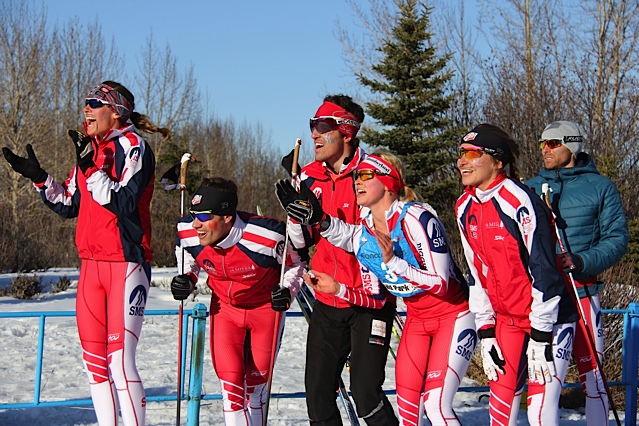
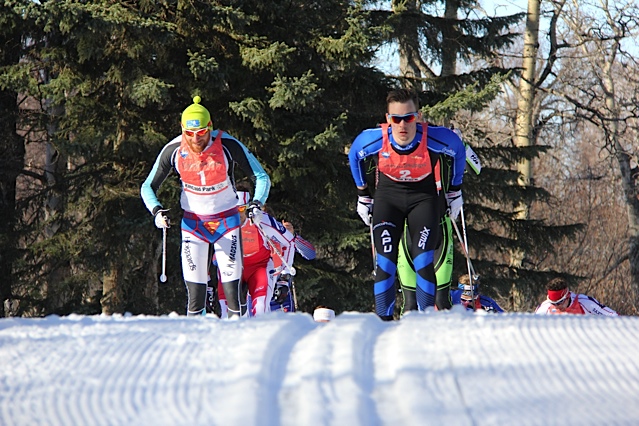
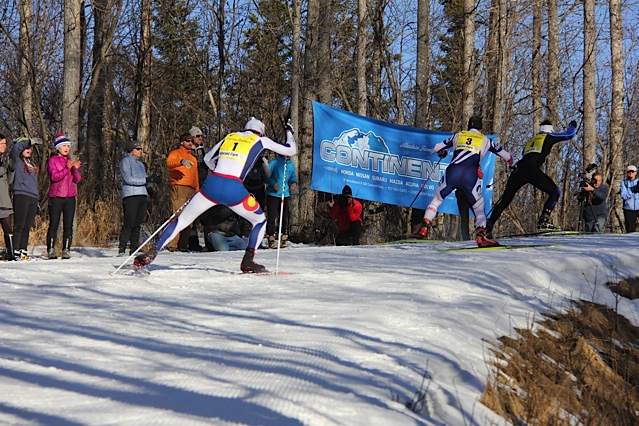
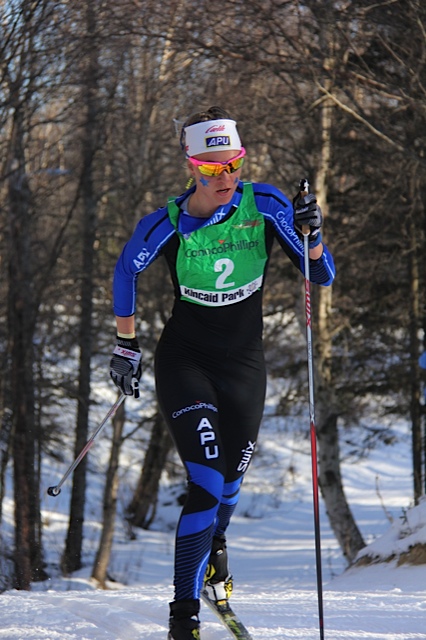
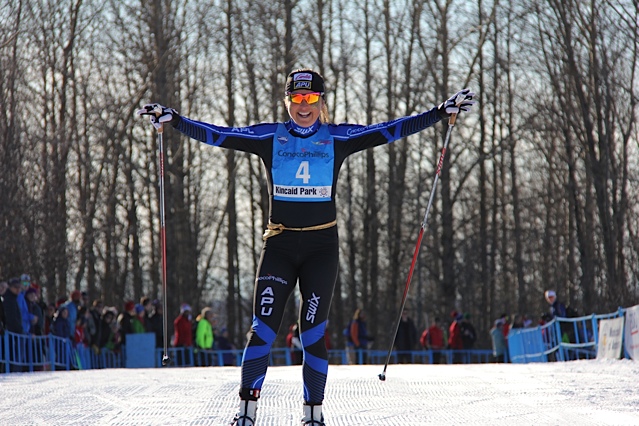
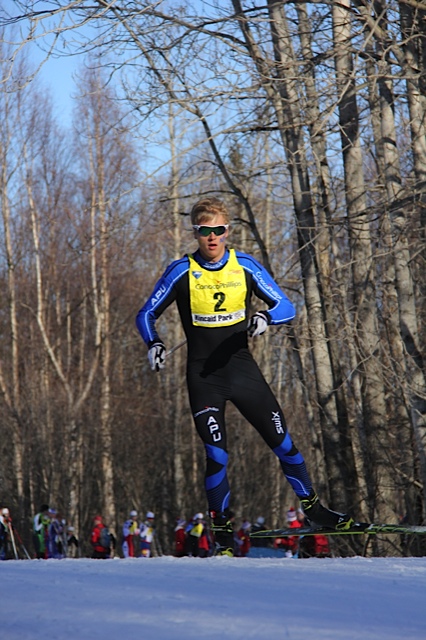
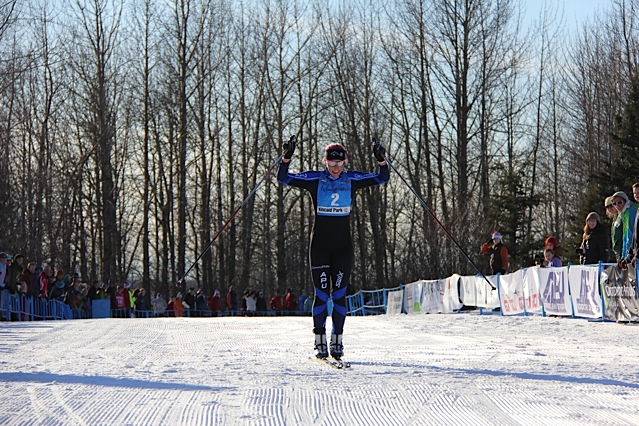
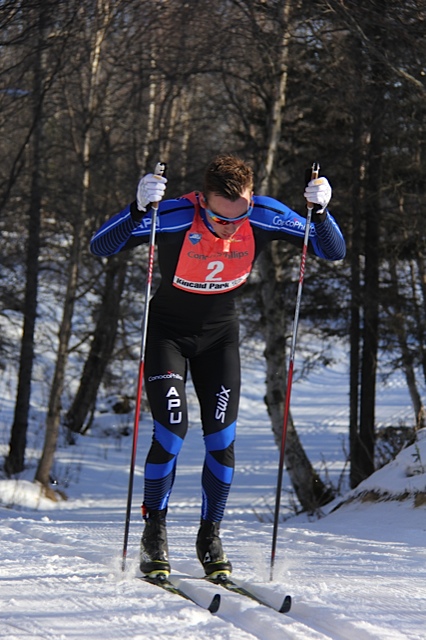
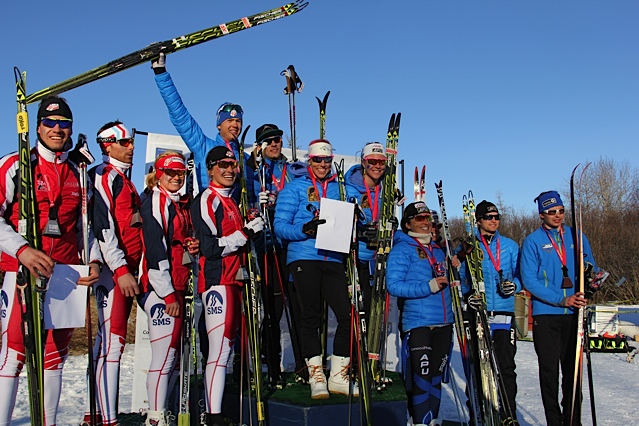
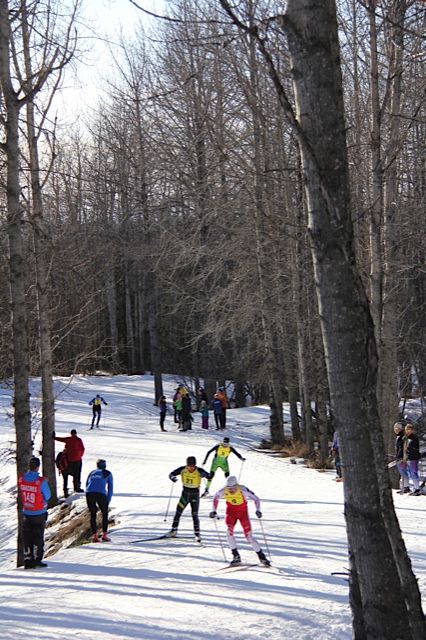
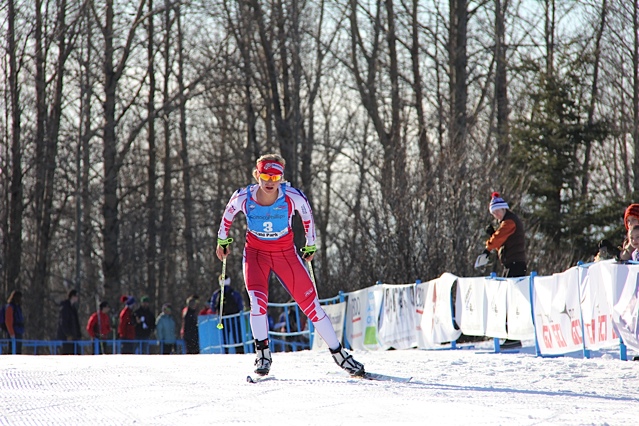
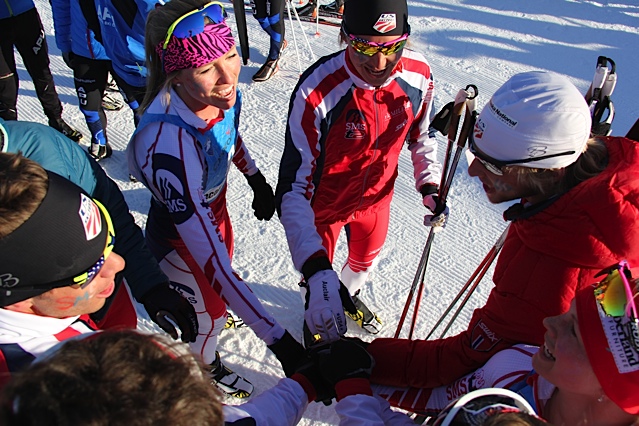
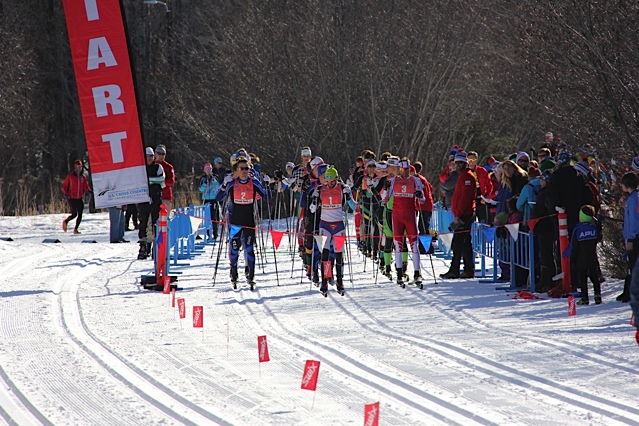
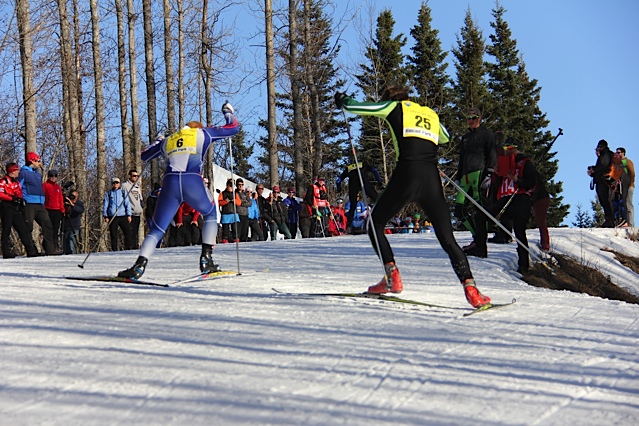
![Hanneman [P] Rob Whitney](http://skitrax.com/wp-content/uploads/2014/03/Hanneman-44.jpg)
![Newell [P] Rob Whitney](http://skitrax.com/wp-content/uploads/2014/03/Newell-49.jpg)
![Quarter final action [P] Rob Whitney](http://skitrax.com/wp-content/uploads/2014/03/quarter-final-51.jpg)
![Dakota [P] Rob Whitney](http://skitrax.com/wp-content/uploads/2014/03/Dakota-48.jpg)
![Semifinal action [P] Rob Whitney](http://skitrax.com/wp-content/uploads/2014/03/Semifinal-45.jpg)
![Kornfield [P] Rob Whitney](http://skitrax.com/wp-content/uploads/2014/03/Kornfield-52.jpg)
![Final podium (l-r) Newell, Obrien, Saxton, Hanneman, Kornfield, Dakota [P] Rob Whitney](http://skitrax.com/wp-content/uploads/2014/03/Newell-Obrien-Saxton-Reese-Kornfield-Dakota-43.jpg)
![Canada's Rosanna Crawford [P] Nordic Focus Canada's Rosanna Crawford [P] Nordic Focus](http://skitrax.com/wp-content/uploads/2014/03/Crawford021313cm109.2.jpg)
![Susan Dunklee (USA) [P] Nordic Focus file photo Susan Dunklee (USA) [P] Nordic Focus file photo](http://skitrax.com/wp-content/uploads/2014/03/dunklee160314al0261.jpg)
![Anastasiya Kuzmina (SVK) wins... [P] Nordic Focus Anastasiya Kuzmina (SVK) wins... [P] Nordic Focus](http://skitrax.com/wp-content/uploads/2014/03/Kuzmina22032014cm14.2.jpg)
![Kaisa Maekaeraeinen (FIN)... [P] Nordic Focus Kaisa Maekaeraeinen (FIN)... [P] Nordic Focus](http://skitrax.com/wp-content/uploads/2014/03/Makaraenin-23032014cm17.2.jpg)
![Zina Kocher (CAN)... [P] Nordic Focus file photo Zina Kocher (CAN)... [P] Nordic Focus file photo](http://skitrax.com/wp-content/uploads/2014/03/Kocher12042011cm281.2.jpg)
![Final podium [P] Nordic Focus Final podium [P] Nordic Focus](http://skitrax.com/wp-content/uploads/2014/03/W-Podium-23032014cm23.2.jpg)
![Andrea Henkel (GER) retires... [P] Nordic Focus Andrea Henkel (GER) retires... [P] Nordic Focus](http://skitrax.com/wp-content/uploads/2014/03/Henkel23032014cm18.2.jpg)
![Tora Berger (NOR) also retires... [P] Nordic Focus Tora Berger (NOR) also retires... [P] Nordic Focus](http://skitrax.com/wp-content/uploads/2014/03/Berger22032014cm22.2.jpg)
![Susan Dunklee (USA) [P] Nordic Focus Susan Dunklee (USA) [P] Nordic Focus](http://skitrax.com/wp-content/uploads/2014/03/Dunklee22032014cm40.2-2.jpg)
![Welcome to Alaska - moose sighting on the way to Anchorage... [P] courtesy of Sophie Caldwell Welcome to Alaska - moose sighting on the way to Anchorage... [P] courtesy of Sophie Caldwell](http://skitrax.com/wp-content/uploads/2014/03/Moose-BjSQbjtCYAASLhF.jpg)
![Susan Dunklee celebrates a bronze win, and first career podium, in the 7.5 k sprint today at World Cup 9 in Oslo, Norway. [P] US Biathlon/NordicFocus](http://skitrax.com/wp-content/uploads/2014/03/Dunklee20032014cm20.jpg)
![Junior Men's podium [P] CCC Junior Men's podium [P] CCC](http://skitrax.com/wp-content/uploads/2014/03/cb-jr-men-podium.jpg)
![Junior Women's podium [P] CCC Junior Women's podium [P] CCC](http://skitrax.com/wp-content/uploads/2014/03/cb-jr-woman-edited.jpg)
![Open Men's podium [P] CCC Open Men's podium [P] CCC](http://skitrax.com/wp-content/uploads/2014/03/cb-open-men-classic2.jpg)
![Open Women's podium [P] CCC Open Women's podium [P] CCC](http://skitrax.com/wp-content/uploads/2014/03/1-open-wom-2.jpg)
![Junior Boy's podium [P] CCC Junior Boy's podium [P] CCC](http://skitrax.com/wp-content/uploads/2014/03/Jr-Boys-podium-IMG_00000104.jpg)
![Juvenile Boys podium (Antoine Laforte absent) [P] CCC Juvenile Boys podium (Antoine Laforte absent) [P] CCC](http://skitrax.com/wp-content/uploads/2014/03/Juvenile-Boys-podium-minus-Antoine-Laforte-1-juv.jpg)
![Juvenile Girls Podium [P] CCC Juvenile Girls Podium [P] CCC](http://skitrax.com/wp-content/uploads/2014/03/Juvenile-Girls-Podium-1-juv-girls.jpg)
![Junior Girls Podium [P] CCC Junior Girls Podium [P] CCC](http://skitrax.com/wp-content/uploads/2014/03/Jr-Girls-Podium-1-jr-girls.jpg)

![Final World Cup podium (l-r) Legkov 2nd, Sundby 1st, Harvey 3rd. [P] Nordic Focus Final World Cup podium (l-r) Legkov 2nd, Sundby 1st, Harvey 3rd. [P] Nordic Focus](http://skitrax.com/wp-content/uploads/2014/03/Final-WCup-podium-2014-03-18-at-8.59.03-AM.jpg)
![Harvey leading Sundby and Legkov [P] Nordic Focus Harvey leading Sundby and Legkov [P] Nordic Focus](http://skitrax.com/wp-content/uploads/2014/03/Harvey-160314mf116.jpg)
![Devon Kershaw (CAN) [P] Nordic Focus Devon Kershaw (CAN) [P] Nordic Focus](http://skitrax.com/wp-content/uploads/2014/03/Kershaw160314mf099.jpg)
![USA's Noah Hoffman (2nd from left) [P] Nordic Focus](http://skitrax.com/wp-content/uploads/2014/03/Hoffman-150314mf084.2.jpg)
![Harvey (l) at the finish with Sundby and Legkov [P] Nordic Focus Harvey (l) at the finish with Sundby and Legkov [P] Nordic Focus](http://skitrax.com/wp-content/uploads/2014/03/M-podium-160314mf128.jpg)
![Martin Johnsrud Sundby (NOR) [P] Nordic Focus Martin Johnsrud Sundby (NOR) [P] Nordic Focus](http://skitrax.com/wp-content/uploads/2014/03/Sundby140314mf080.2.jpg)
![Canada's Klebl and McKeever all smiles with GOLD [P] Matthew Murnaghan/Canadian Paralympic Committee](http://skitrax.com/wp-content/uploads/2014/03/Klebl-and-McKeever.2.jpg)
![Brian McKeever and his guide Erik Carleton [P] Matthew Murnaghan/Canadian Paralympic Committee Brian McKeever and his guide Erik Carleton [P] Matthew Murnaghan/Canadian Paralympic Committee](http://skitrax.com/wp-content/uploads/2014/03/McKeever-2014-03-16-at-7.46.41-PM.2.jpg)
![Chris Klebl en route to gold [P] Matthew Murnaghan/Canadian Paralympic Committee Chris Klebl en route to gold [P] Matthew Murnaghan/Canadian Paralympic Committee](http://skitrax.com/wp-content/uploads/2014/03/Klebl-2014-03-16-at-7.45.22-PM.2.jpg)
![Chris Klebl (c) on the podium with gold. [P] Matthew Murnaghan/Canadian Paralympic Committee Chris Klebl (c) on the podium with gold. [P] Matthew Murnaghan/Canadian Paralympic Committee](http://skitrax.com/wp-content/uploads/2014/03/Klebl-podium-2014-03-16-at-7.46.17-PM.2.jpg)
![Open Women's Podium [P] CCC Open Women's Podium [P] CCC](http://skitrax.com/wp-content/uploads/2014/03/cb-womens-TSprint-podium.jpg)
![Open Men's podium [P] CCC Open Men's podium [P] CCC](http://skitrax.com/wp-content/uploads/2014/03/cb-open-TSprint-podium-men.jpg)
![NST/Olympian Perianne Jones (right) visits Martine at the CCC tent [P] CCC NST/Olympian Perianne Jones (right) visits Martine at the CCC tent [P] CCC](http://skitrax.com/wp-content/uploads/2014/03/cb-tent-Perianne-Jones.jpg)
![Challenge Boys relay start [P] CCC Challenge Boys relay start [P] CCC](http://skitrax.com/wp-content/uploads/2014/03/cb-challenge-start.jpg)
![Chelsea ekes out the victory over Skibec [P] CCC Chelsea ekes out the victory over Skibec [P] CCC](http://skitrax.com/wp-content/uploads/2014/03/cb-photo-Chelsea-Skibec.jpg)
![Alex Harvey (CAN) celebrates [P] Nordic Focus Alex Harvey (CAN) celebrates [P] Nordic Focus](http://skitrax.com/wp-content/uploads/2014/03/Harvey150314mf132.jpg)
![Harvey (l) battles Sundby for gold [P] Nordic Focus Harvey (l) battles Sundby for gold [P] Nordic Focus](http://skitrax.com/wp-content/uploads/2014/03/Harvey-Sundby-150314mf126.jpg)
![Harvey leads the break of four skiers [P] Nordic Focus Harvey leads the break of four skiers [P] Nordic Focus](http://skitrax.com/wp-content/uploads/2014/03/Harvey-4-leaders-150314mf109.jpg)
![Devon Kershaw (CAN) is back in the mix... [P] Nordic Focus Devon Kershaw (CAN) is back in the mix... [P] Nordic Focus](http://skitrax.com/wp-content/uploads/2014/03/Kershaw150314mf119.jpg)
![Final podium (l-r) Sundby 2nd, Harvey 1st , Legkov 3rd [P] Nordic Focus Final podium (l-r) Sundby 2nd, Harvey 1st , Legkov 3rd [P] Nordic Focus](http://skitrax.com/wp-content/uploads/2014/03/M-Podium-150314mf138.jpg)
![Final podium (l-r) Loginov 2nd, Boe 1st, Bailey 3rd [P] Nordic Focus Final podium (l-r) Loginov 2nd, Boe 1st, Bailey 3rd [P] Nordic Focus](http://skitrax.com/wp-content/uploads/2014/03/M-podium-150314al016.2.jpg)
![Lowell Bailey on his way to the record books [P] Nordic Focus Lowell Bailey on his way to the record books [P] Nordic Focus](http://skitrax.com/wp-content/uploads/2014/03/Lowell-Bailey.jpg)
![Canada's Nathan Smith [P] Nordic Focus](http://skitrax.com/wp-content/uploads/2014/03/smith130314al067.21.jpg)
![Johannes Thingnes Boe [P] Nordic Focus Johannes Thingnes Boe [P] Nordic Focus](http://skitrax.com/wp-content/uploads/2014/03/boe150314al007.2.jpg)
![Chris Klebl [P] Matthew Murnaghan/Canadian Paralympic Committee](http://skitrax.com/wp-content/uploads/2014/03/Klebl-2014-03-15-at-4.38.05-PM.jpg)
![Nishikawa guides McKeever [P] Matthew Murnaghan/Canadian Paralympic Committee](http://skitrax.com/wp-content/uploads/2014/03/McKeever-2014-03-15-at-4.27.53-PM.jpg)
![Tatyana McFadden [P] Buzz Covington Photography](http://skitrax.com/wp-content/uploads/2014/03/Tatyana-McFadden-MixedRelay4_BuzzCovington.2.jpg)
![Jake Adicoff in action with guide Reid Pletcher [P] Buzz Covington Photography](http://skitrax.com/wp-content/uploads/2014/03/Jake-Adicoff-MixedRelay2_BuzzCovington.2.jpg)
![Final sprint (l-r) Sweden's Joensson, Halfvarsson, Peterson [P] Nordic Focus Final sprint (l-r) Sweden's Joensson, Halfvarsson, Peterson [P] Nordic Focus](http://skitrax.com/wp-content/uploads/2014/03/M-Sweden-Sprint-CL-140314mf129.2.jpg)
![Final podium (l-r) Joensson 2nd, Peterson 1st, Halfvarsson 3rd [P] Nordic Focus Final podium (l-r) Joensson 2nd, Peterson 1st, Halfvarsson 3rd [P] Nordic Focus](http://skitrax.com/wp-content/uploads/2014/03/M-Podium-140314mf144.2.jpg)
![Alex Harvey (CAN) [P] Nordic Focus Alex Harvey (CAN) [P] Nordic Focus](http://skitrax.com/wp-content/uploads/2014/03/Harvey140314mf043.2.jpg)
![Andrew Newell (USA) [P] Nordic Focus Andrew Newell (USA) [P] Nordic Focus](http://skitrax.com/wp-content/uploads/2014/03/Newell140314mf071.2.jpg)
![Quarter final action...(l-r) Halfvarsson, Harvey, Newell, Hellner, Richardsson and Poltoranin.[P] Nordic Focus Quarter final action...(l-r) Halfvarsson, Harvey, Newell, Hellner, Richardsson and Poltoranin.[P] Nordic Focus](http://skitrax.com/wp-content/uploads/2014/03/Harvey-Newell-140314mf097.2.jpg)
![Sprint Cup final podium (l-r) Brandsdal 2nd, Hattestad 2nd, Wenzl 3rd [P] Nordic Focus Sprint Cup final podium (l-r) Brandsdal 2nd, Hattestad 2nd, Wenzl 3rd [P] Nordic Focus](http://skitrax.com/wp-content/uploads/2014/03/M-Sprint-Podium-140314mf150.2.jpg)
![Kikkan Randall (USA) with teammates celebrating her 3rd Sprint Cup globe [P] Nordic Focus](http://skitrax.com/wp-content/uploads/2014/03/Randall140314mf151.2.jpg)
![Sophie Caldwell (USA) another breakthrough performance... [P] Nordic Focus](http://skitrax.com/wp-content/uploads/2014/03/Caldwell140314mf014.2.jpg)
![Sadie Bjornsen (USA) [P] Nordic Focus](http://skitrax.com/wp-content/uploads/2014/03/Bjornsen140314mf033.2.jpg)
![(l-r) Bjornsen, Caldwell, Kylloenen, Weng, Randall, Boehler [P] Nordic Focus (l-r) Bjornsen, Caldwell, Kylloenen, Weng, Randall, Boehler [P] Nordic Focus](http://skitrax.com/wp-content/uploads/2014/03/Bjornsen-Caldwell-Randall-140314mf084.2.jpg)
![Marit Bjoergen (NOR) wins... [P] Nordic Focus](http://skitrax.com/wp-content/uploads/2014/03/Bjoergen140314mf125.2.jpg)
![Sprint Cup final podium (l-r) Herrmann 2nd, Randall 1st, Bjoergen 3rd [P] Nordic Focus](http://skitrax.com/wp-content/uploads/2014/03/W-Sprint-Podium-140314mf148.2.jpg)
![Andy Soule [P] Buzz Convington](http://skitrax.com/wp-content/uploads/2014/03/AndySouleMens-1km-Sprint-Sitting_BuzzConvington.2.jpg)
![Brian McKeever (l) and his guide Graham Nishikawa win gold despite a crash at Sochi 2014 [P] Matthew Murnaghan/Canadian Paralympic Committee Brian McKeever (l) and his guide Graham Nishikawa win gold despite a crash at Sochi 2014 [P] Matthew Murnaghan/Canadian Paralympic Committee](http://skitrax.com/wp-content/uploads/2014/03/McKeever2.jpg)
![Brian McKeever (l) and his guide Graham Nishikawa win the gold medal in the Men's 1km Sprint Visually Impaired Final [P] Matthew Murnaghan/Canadian Paralympic Committee Brian McKeever (l) and his guide Graham Nishikawa win the gold medal in the Men's 1km Sprint Visually Impaired Final [P] Matthew Murnaghan/Canadian Paralympic Committee](http://skitrax.com/wp-content/uploads/2014/03/McKeever.jpg)
![USA's Tatyana McFadden wins silver XC Sprint at Sochi 2014 [P] Buzz Covington](http://skitrax.com/wp-content/uploads/2014/03/McFaddenSprint_BuzzCovington.2.jpg)
![Andy Soule [P] Getty Images](http://skitrax.com/wp-content/uploads/2014/03/Soule-477219641_10.2.jpg)
![Dario Colonga [P] Nordic Focus](http://skitrax.com/wp-content/uploads/2014/03/Colonga-NFocus53297_G08_W01.jpg)
![(l-r) Ulset (NOR) 2nd, Karachurin (RUS) 1st, Arendz (CAN) 3rd [P] Scott Grant/Canadian Paralympic Committee (l-r) Ulset (NOR) 2nd, Karachurin (RUS) 1st, Arendz (CAN) 3rd [P] Scott Grant/Canadian Paralympic Committee](http://skitrax.com/wp-content/uploads/2014/03/Podium.jpg)
![Andrew Soule [P] file photo Pam Doyle Andrew Soule [P] file photo Pam Doyle](http://skitrax.com/wp-content/uploads/2014/03/AndrewSoule-sprint_pamdoyle-w.2.jpg)
![Caroline Bisson (CAN) [P] Matthew Murnaghan/Canadian Paralympic Committee Caroline Bisson (CAN) [P] Matthew Murnaghan/Canadian Paralympic Committee](http://skitrax.com/wp-content/uploads/2014/03/Bisson.jpg)
![Kikkan Randall (USA) [P] Nordic Focus](http://skitrax.com/wp-content/uploads/2014/03/Randall090314mf0411.jpg)
![(l-r) Kristoffersen, Randall, Bjornsen [P] Nordic Focus](http://skitrax.com/wp-content/uploads/2014/03/Randall-Bjornsen-090314mf013.2.jpg)
![Gloeersen (l-r) and Roponen [P] Swiss Ski Gloeersen (l-r) and Roponen [P] Swiss Ski](http://skitrax.com/wp-content/uploads/2014/03/Gloeersen-and-Roponen-53107_G08_W01.jpg)
![Men's Marathon Cup final podium (l-r) Benoit Chauvet 2nd, Tom Reichelt 1st, Martin Koukal 3rd [P] Worldloppet Men's Marathon Cup final podium [P] Worldloppet](http://skitrax.com/wp-content/uploads/2014/03/M-Marathon-Cup-podium.jpg)
![Women's Marathon Cup final podium (l-r) Antonella Confortola 2nd, Riita-Liisa Roponen 1st, Seraina Boner 3rd [P] Worldloppet [P] Worldloppet Women's Marathon Cup final podium (l-r) Antonella Confortola 2nd, Riita-Liisa Roponen 1st, Seraina Boner 3rd [P] Worldloppet [P] Worldloppet](http://skitrax.com/wp-content/uploads/2014/03/Women-Marathon-Podium.jpg)
![Heidi Halvorsen at the finish of the FU18 relay [P] Herb Swanson Heidi Halvorsen [P] Herb Swanson](http://skitrax.com/wp-content/uploads/2014/03/FU20-Heidi-Halvorsen-HS_17.2.jpg)
![Team New England wins the Alaska Cup [P] Herb Swanson Team New England wins the Alaska Cup [P] Herb Swanson](http://skitrax.com/wp-content/uploads/2014/03/Team-New-England-HS_26.2.jpg)
![Katharine Ogden [P] Herb Swanson Katharine Ogden [P] Herb Swanson](http://skitrax.com/wp-content/uploads/2014/03/FU18-Katharine-Ogden-HS_08.jpg)
![Cole Morgan [P] Herb Swanson Cole Morgan [P] Herb Swanson](http://skitrax.com/wp-content/uploads/2014/03/MU20-Cole-Morgan-HS_24.jpg)
![Zach Williams [P] Herb Swanson Zach Williams [P] Herb Swanson](http://skitrax.com/wp-content/uploads/2014/03/MU16-Zach-Williams-HS_07.2.jpg)
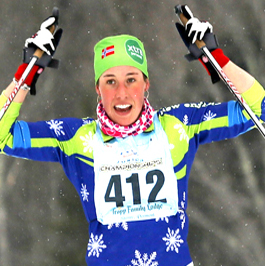

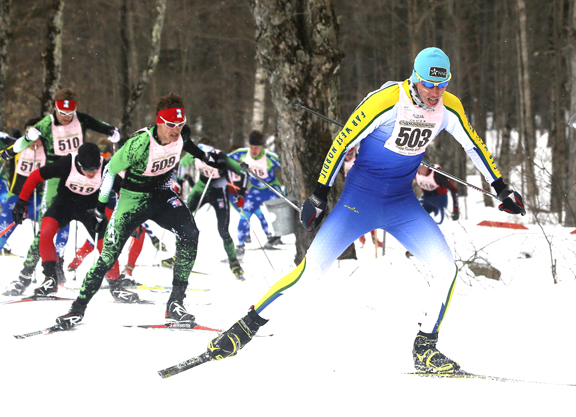
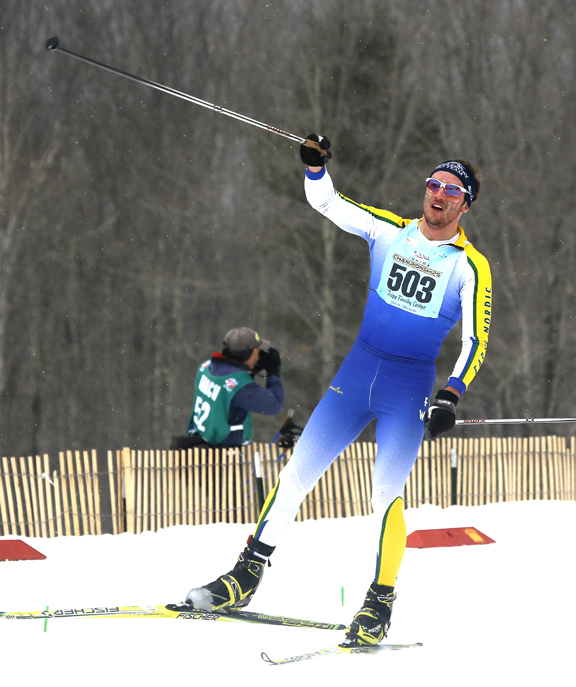
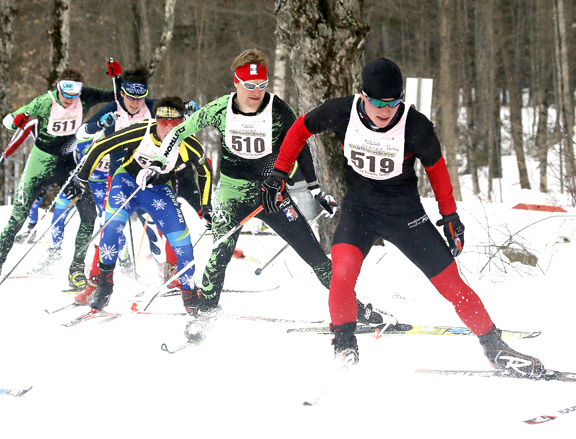

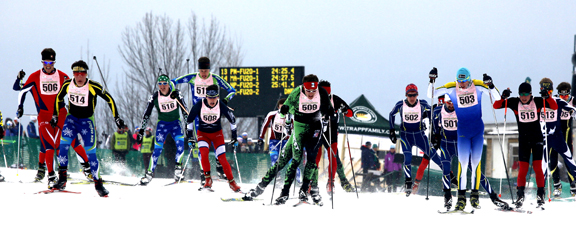
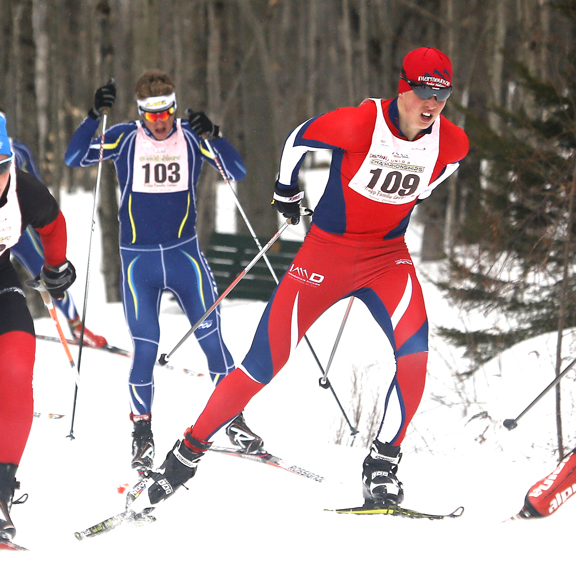
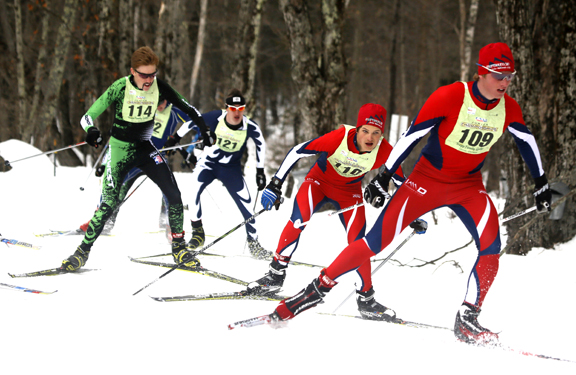

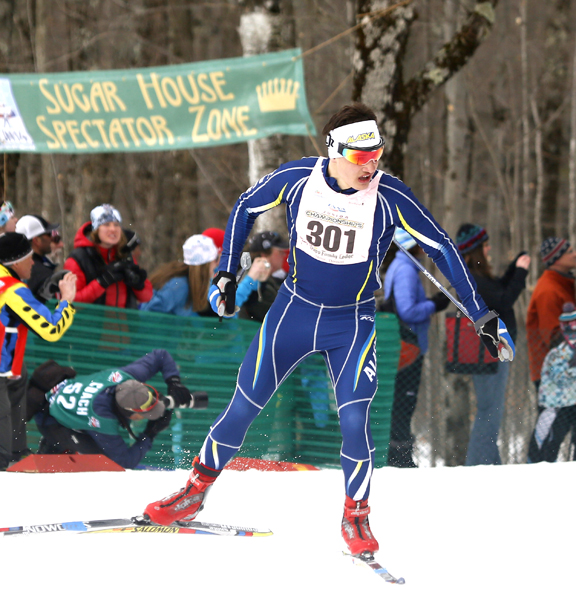
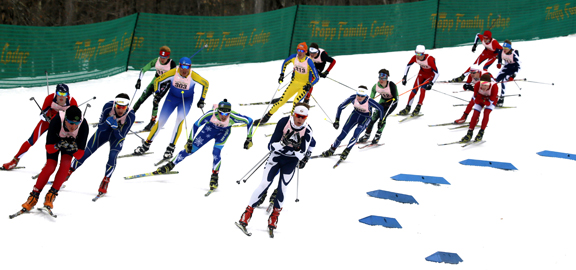
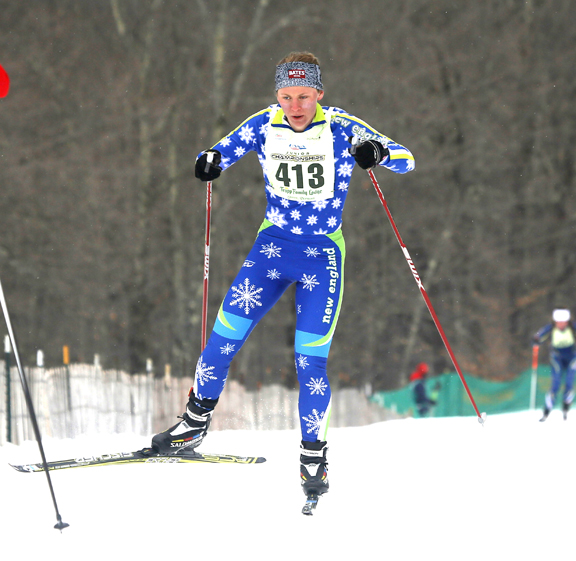
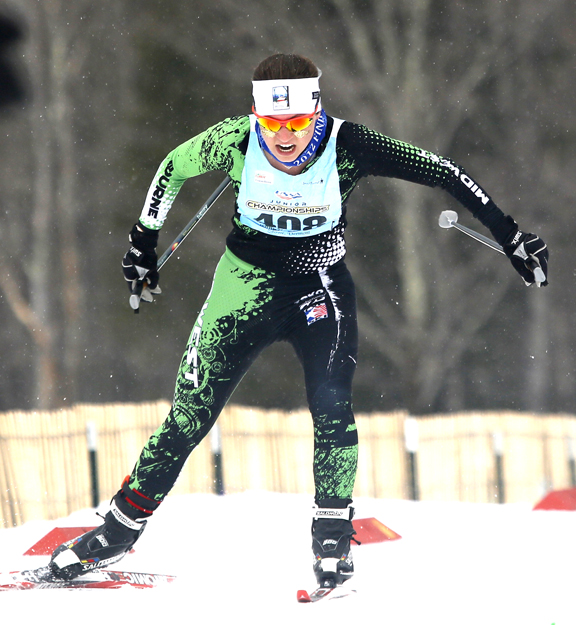
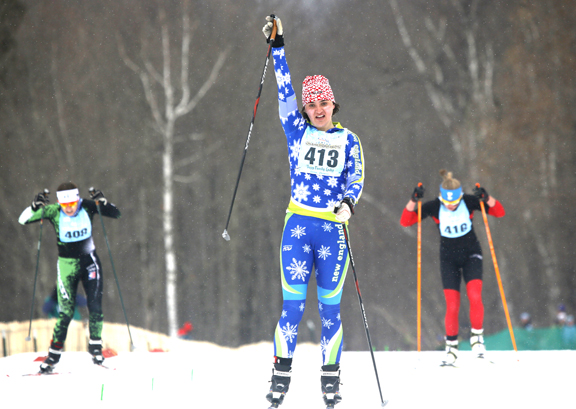
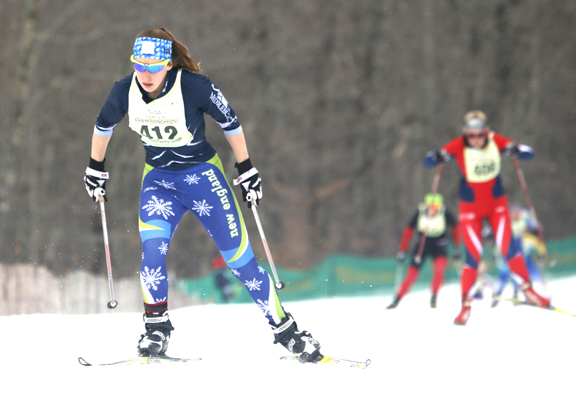
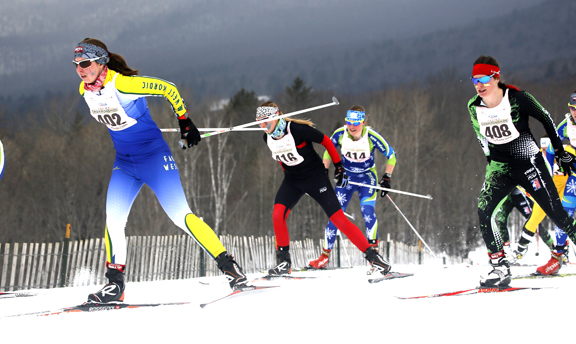
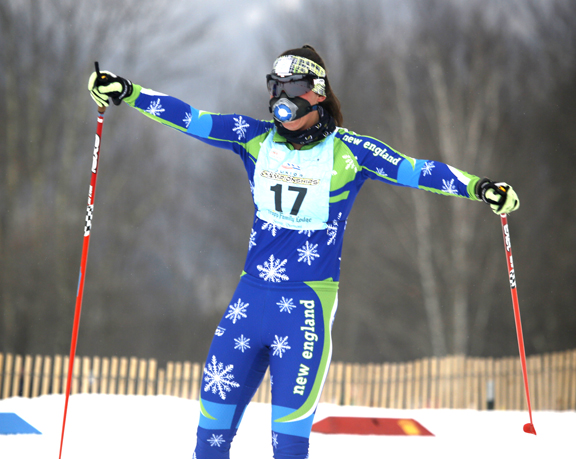

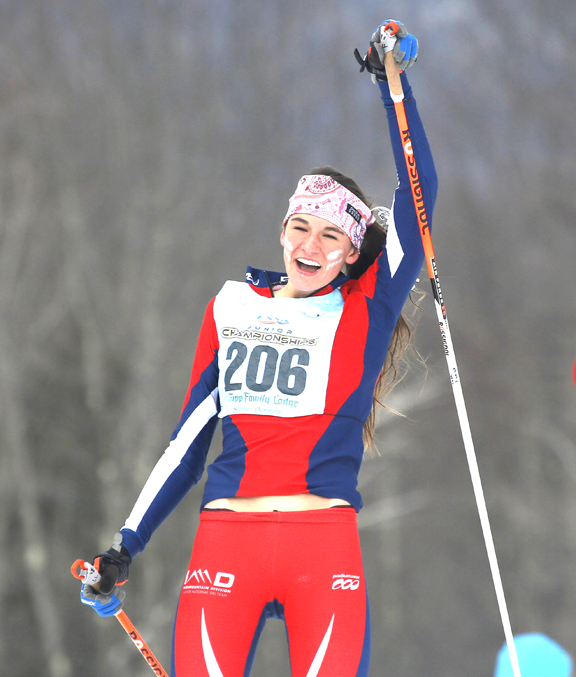
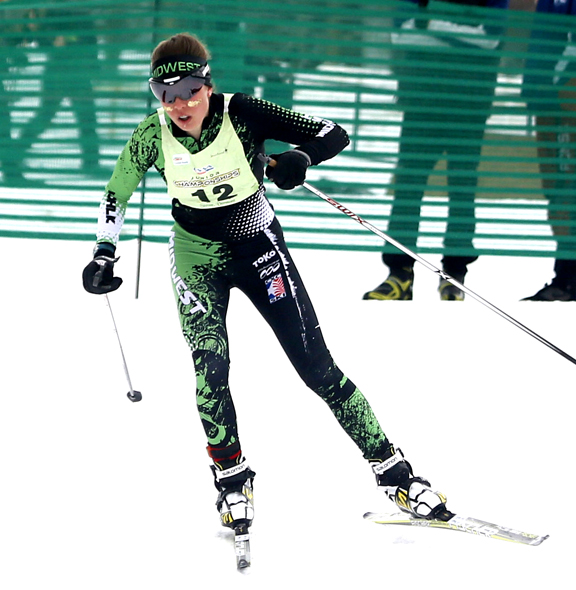
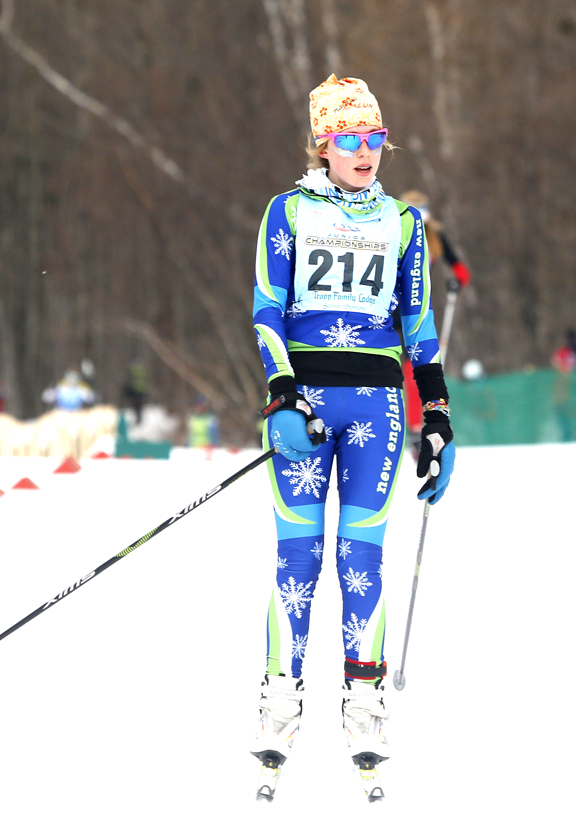
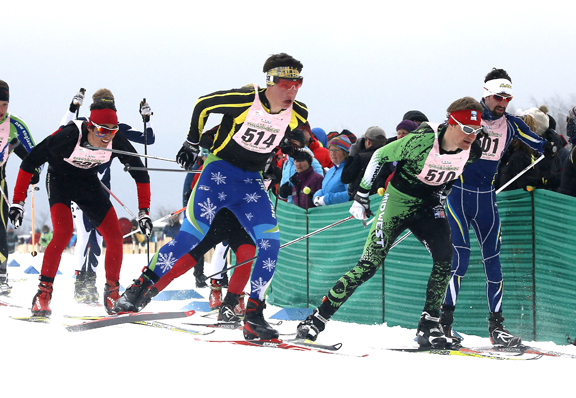
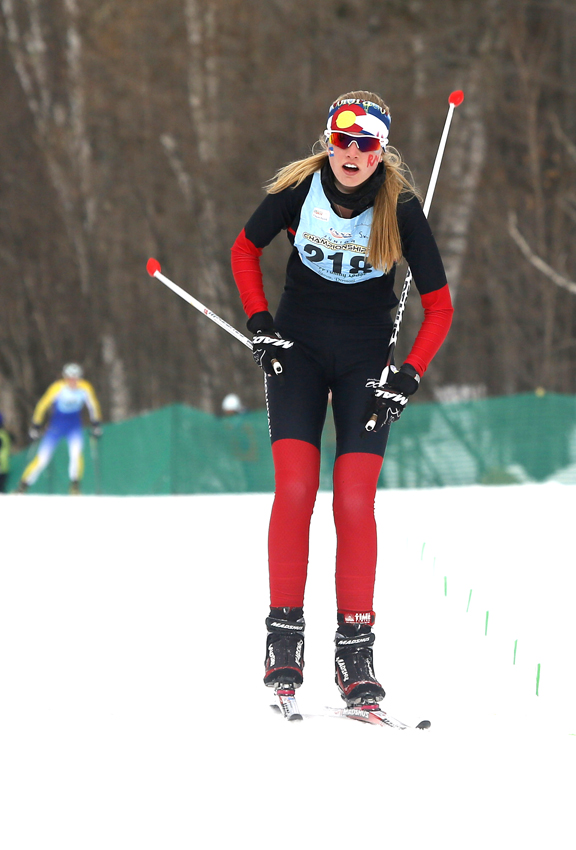

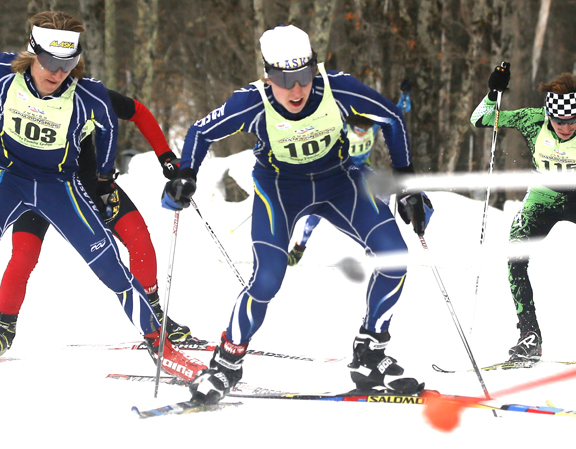
![Daniel Richardsson [P] Nordic Focus](http://skitrax.com/wp-content/uploads/2014/03/Richardsson-52986_G08_W01.2.jpg)
![Alex Harvey (CAN) [P] Nordic Focus](http://skitrax.com/wp-content/uploads/2014/03/Harvey-080314mf080.2.jpg)
![Richardsson triumphs with a solid 50km CL victory [P]](http://skitrax.com/wp-content/uploads/2014/03/Richardsson080314mf061.2.jpg)
![Final podium (l-r) Sundby 2nd, Richardsson 1st, Legkov 3rd [P] Nordic Focus](http://skitrax.com/wp-content/uploads/2014/03/M-podium080314al007.2.jpg)
![Lowell Bailey (l) and Jaroslav Soukup (CZE) race to claim the 10th place finish in the World Cup pursuit today. [P] US Biathlon/NordicFocus.](http://skitrax.com/wp-content/uploads/2014/03/Bailey-Soukup-08032014cm32.1.jpg)
![Mark Arendz on his way to historic silver [P] Matthew Murnaghan/Canadian Paralympic Committee](http://skitrax.com/wp-content/uploads/2014/03/Arenz-2014-03-08-at-4.15.41-PM.jpg)
![Stocek wins the MU20 race [P] Herb Swanson](http://skitrax.com/wp-content/uploads/2014/03/Stocek-MU20-HS_07-copy.jpg)
![Maggie Williams (FU20) [P] Herb Swanson](http://skitrax.com/wp-content/uploads/2014/03/Maggie-Williams.2.jpg)
![MU18 Action [P] Herb Swanson](http://skitrax.com/wp-content/uploads/2014/03/MU18-Action-HS_10-copy.jpg)
![WU18 podium [P] Herb Swanson](http://skitrax.com/wp-content/uploads/2014/03/FU20-Podium-HS_14-copy.jpg)
![MU16 action [P] Herb Swanson](http://skitrax.com/wp-content/uploads/2014/03/MU16.action.HS_21.jpg)
![Maggie Williams (FU20) [P] Herb Swanson](https://skitrax.com/wp-content/uploads/2014/03/Maggie-Williams.2.jpg)
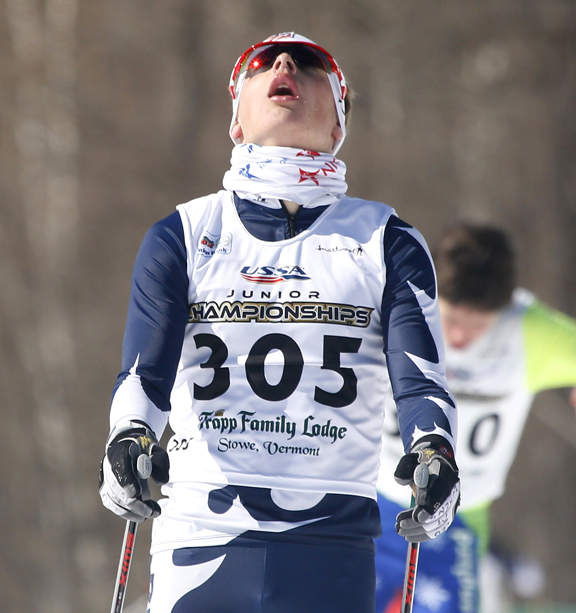
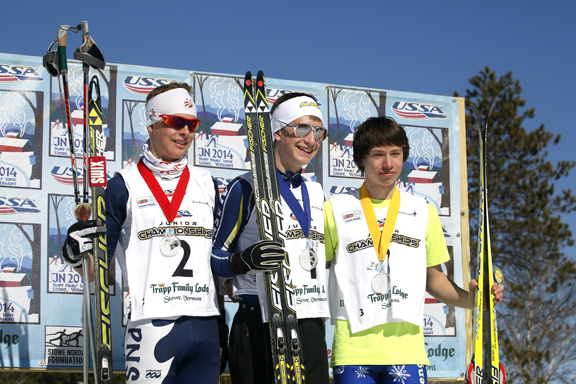
![MU16.action [P] Herb Swanson](https://skitrax.com/wp-content/uploads/2014/03/MU16.action.HS_21.jpg)
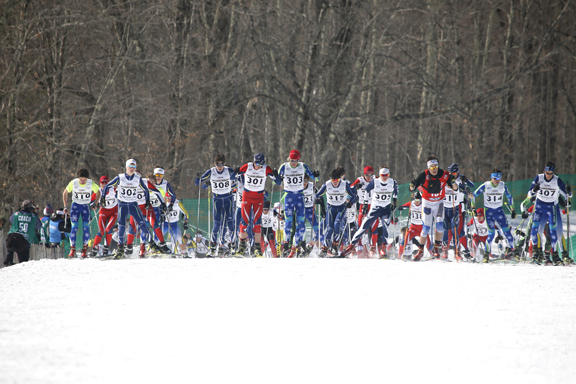
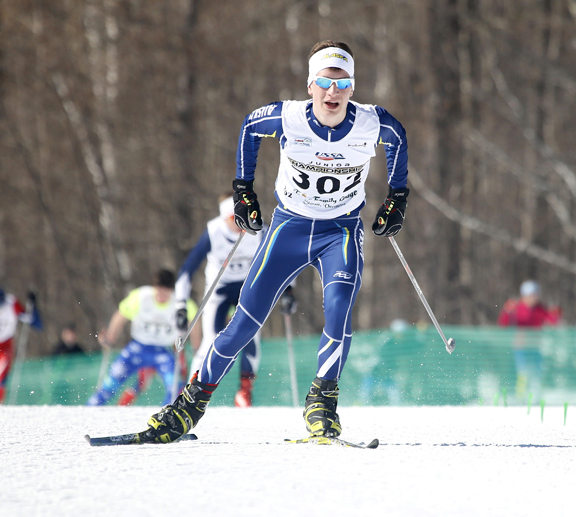
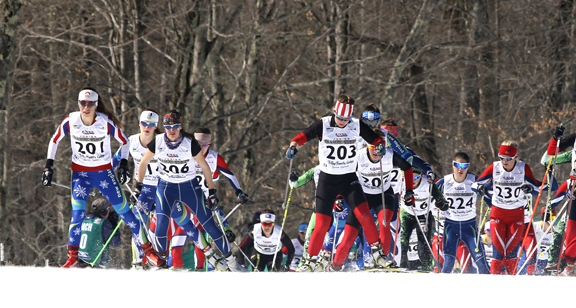
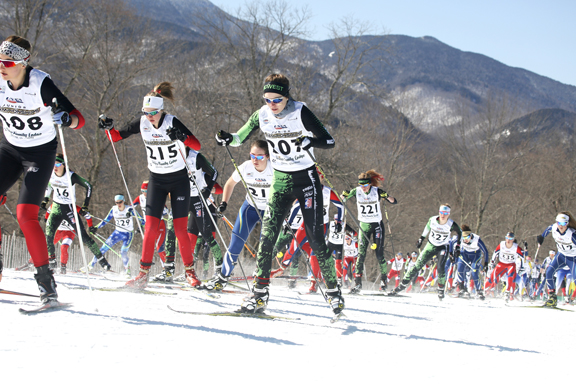
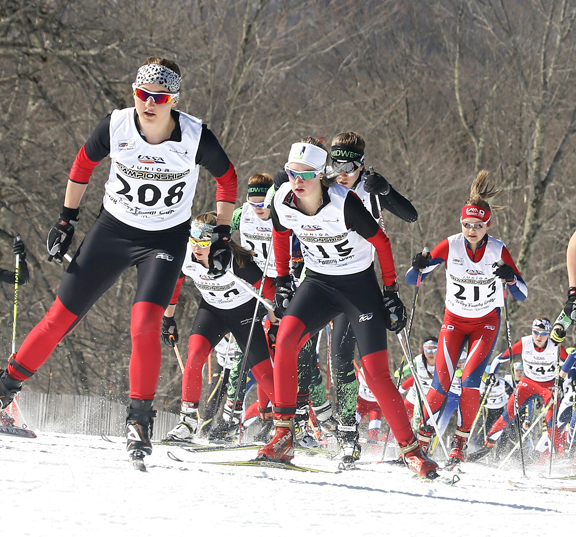
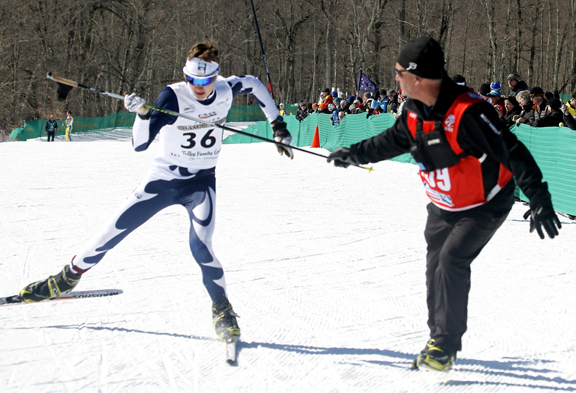
![MU20 (15k) Fabian Stocek [P] Herb Swanson](https://skitrax.com/wp-content/uploads/2014/03/Fabian-Stocek-MU20-HS_01-copy.jpg)
![MU18 (10k) Gavin McEwen [P] Herb Swanson](https://skitrax.com/wp-content/uploads/2014/03/McEwen-MU18-HS_17-copy.jpg)
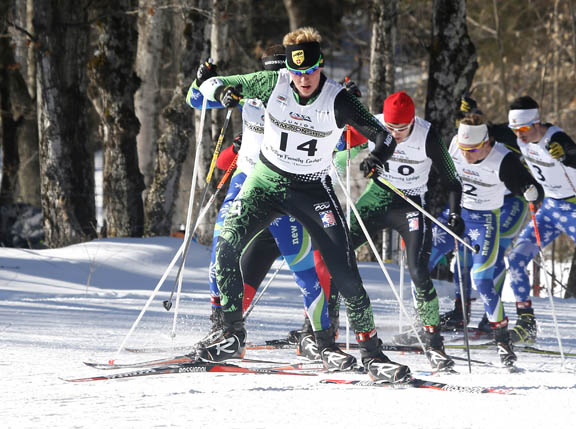
![Thomas Bye (MU20) [P] Herb Swanson](https://skitrax.com/wp-content/uploads/2014/03/Bye-MU20-HS_09-copy.jpg)

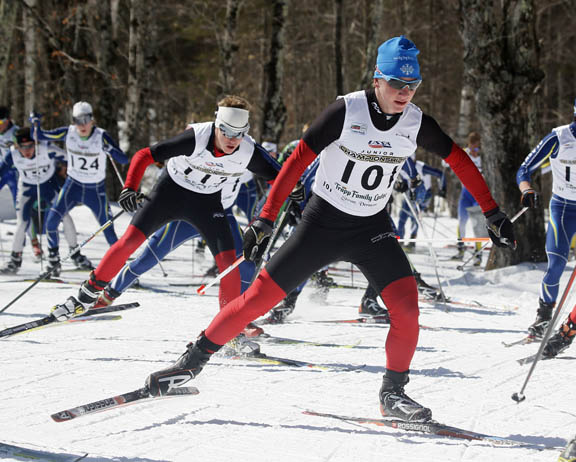

![MU18 Action [P] Herb Swanson](https://skitrax.com/wp-content/uploads/2014/03/MU18-Action-HS_10-copy.jpg)
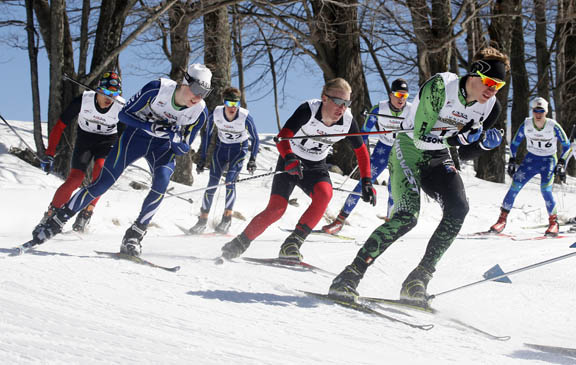
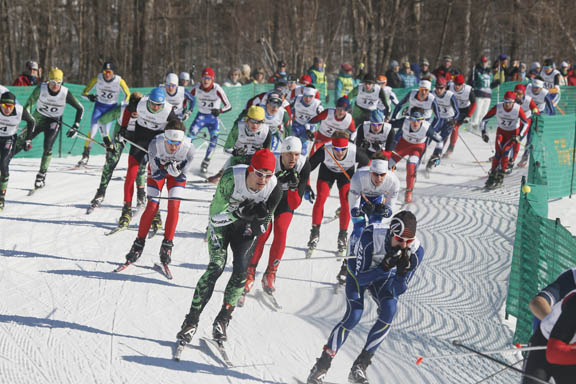
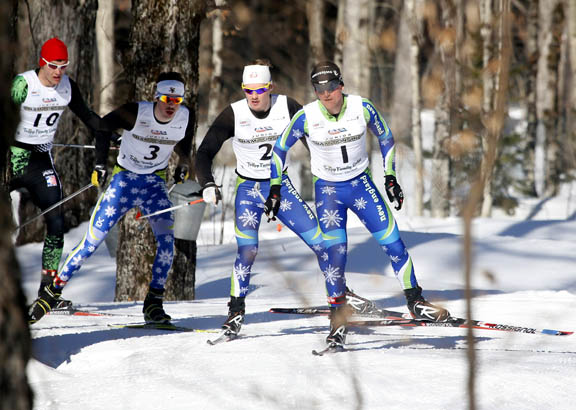
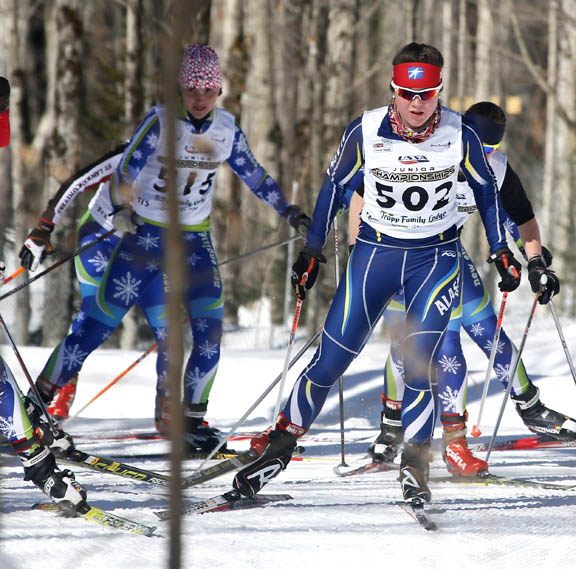
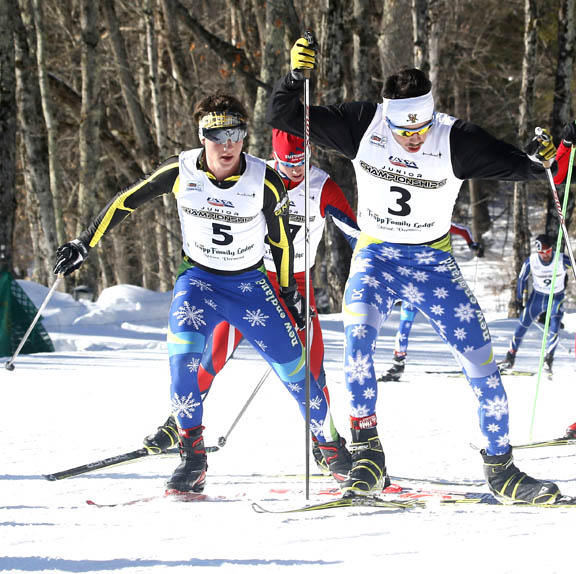
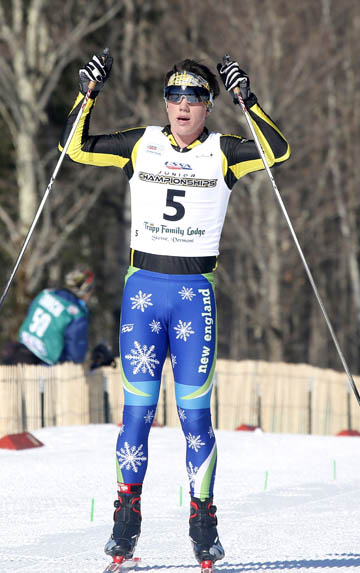
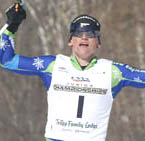

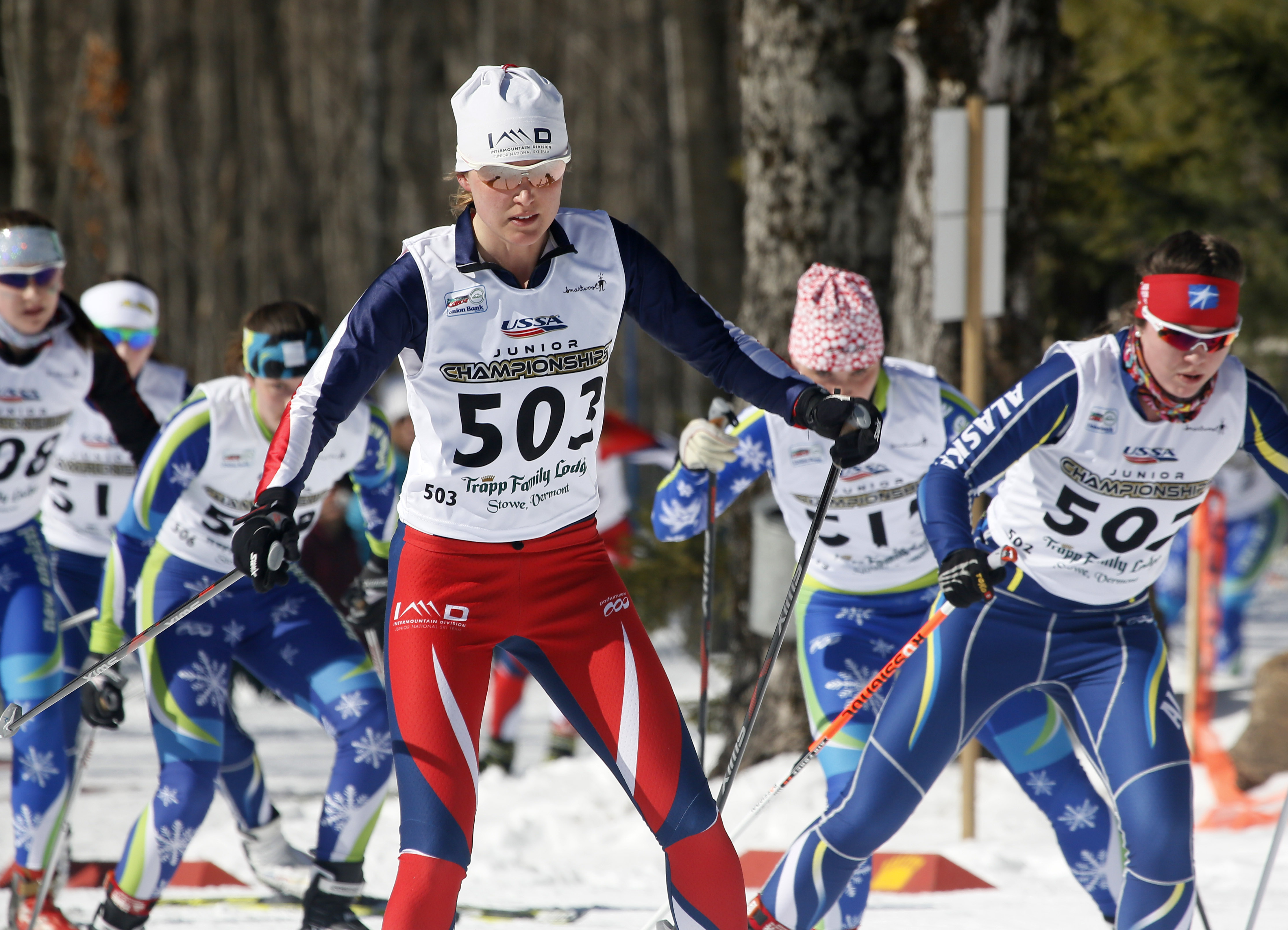

![Men's relay podium (l-r) Canada 2nd, Russia 1st, Finland 3rd [P] Dave Allen](http://skitrax.com/wp-content/uploads/2014/03/M-Relay-podium-8193.2.jpg)
![Sean Doherty (USA) [P] Dave Allen](http://skitrax.com/wp-content/uploads/2014/03/doherty-usa-leg2-8017-copy.jpg)
![Finish line celebration [P] Dave Allen](http://skitrax.com/wp-content/uploads/2014/03/finishlinecelebration-can-8176-copy.jpg)
![Madeleine Grace Phaneuf (USA) [P] Dave Allen](http://skitrax.com/wp-content/uploads/2014/03/phanuef-usa-leg2-7709-copy.jpg)
![Danielle Vrielink (CAN) [P] Dave Allen](http://skitrax.com/wp-content/uploads/2014/03/vrielink-can-leg1-7604-copy.jpg)
![Women's relay podium (l-r) Russia 2nd, France 1st, Austria 3rd [P] Dave Allen](http://skitrax.com/wp-content/uploads/2014/03/podium-7851-copy.jpg)
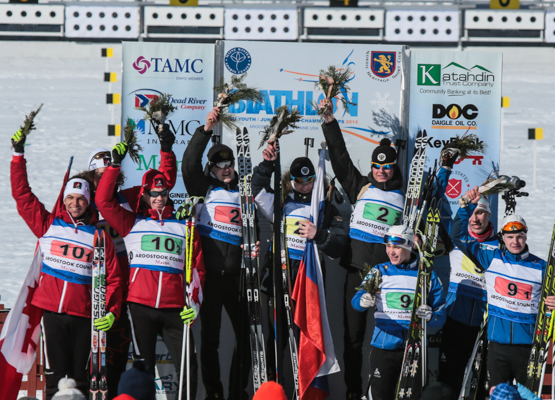
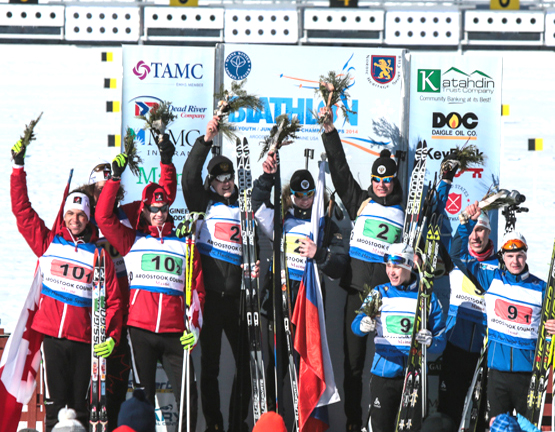
![Everett tags Doherty [P] Dave Allen](https://skitrax.com/wp-content/uploads/2014/03/doherty-everett-usa-leg1-2-7976-copy.jpg)
![Sean Doherty (USA) [P] Dave Allen](https://skitrax.com/wp-content/uploads/2014/03/doherty-usa-leg2-8017-copy.jpg)
![Alex Dupluis (CAN) [P] Dave Allen](https://skitrax.com/wp-content/uploads/2014/03/dupluis-can-leg1-7916-copy.jpg)
![Canada’s Alex Dupluis and Aiden Milliar in leg 2 [P] Dave Allen](https://skitrax.com/wp-content/uploads/2014/03/dupluis-milliar-can-leg1-2-7967-copy.jpg)
![Finish line celebration [P] Dave Allen](https://skitrax.com/wp-content/uploads/2014/03/finishlinecelebration-can-8176-copy.jpg)
![Olli Jaakkola (FIN) [P] Dave Allen](https://skitrax.com/wp-content/uploads/2014/03/jaakkola-fin-leg1-7920-copy.jpg)
![Yaoslav Kostyukov (RUS) [P] Dave Allen](https://skitrax.com/wp-content/uploads/2014/03/kostyukov-rus-leg1-7943-copy.jpg)
![Millar leading Doherty in leg 2 [P] Dave Allen](https://skitrax.com/wp-content/uploads/2014/03/millar-can-doherty-usa-leg2-8028-copy.jpg)
![Viktor Plitkev (RUS) [P] Dave Allen](https://skitrax.com/wp-content/uploads/2014/03/plitkev-rus-leg3-8141-copy.jpg)
![Canada’s Jules Burnotte and Aidan Millar in leg 2 [P] Dave Allen](https://skitrax.com/wp-content/uploads/2014/03/burnotte-miiliar-can-leg2-3-8080-copy.jpg)
![France’s Julia Simon and Lena Arnaud [P] Dave Allen](https://skitrax.com/wp-content/uploads/2014/03/simon-arnaud-france-leg2-3-7741-copy.jpg)
![Simone Kupfner (AUT) [P] Dave Allen](https://skitrax.com/wp-content/uploads/2014/03/kuffner-aut-leg3-7758-copy.jpg)
![Brian Halligan (USA) [P] Dave Allen](https://skitrax.com/wp-content/uploads/2014/03/halligan-usa-leg3-8124-copy.jpg)
![Anna Kubek (USA) [P] Dave Allen](https://skitrax.com/wp-content/uploads/2014/03/kubekusaleg1-7585-copy.jpg)
![Mikaela Paluszek (USA) [P] Dave Allen](https://skitrax.com/wp-content/uploads/2014/03/paluszek-usa-leg3-7783-copy.jpg)
![Madeleine Grace Phaneuf (USA) [P] Dave Allen](https://skitrax.com/wp-content/uploads/2014/03/phanuef-usa-leg2-7709-copy.jpg)
![Danielle Vrielink (CAN) [P] Dave Allen](https://skitrax.com/wp-content/uploads/2014/03/vrielink-can-leg1-7604-copy.jpg)
![Leilani Tam von Burg (CAN) [P] Dave Allen](https://skitrax.com/wp-content/uploads/2014/03/tamvonburg-can-leg3-7831-copy.jpg)
![Tamara Voronina (RUS) [P] Dave Allen](https://skitrax.com/wp-content/uploads/2014/03/veronina-rus-leg2-7700-copy.jpg)
![Susanna Kurzthaler (AUT) [P] Dave Allen](https://skitrax.com/wp-content/uploads/2014/03/kurzthaler-aut-leg2-7707-copy.jpg)
![Lena Arnaud (FRA) [P] Dave Allen](https://skitrax.com/wp-content/uploads/2014/03/arnaud-fr-leg3-7814-copy.jpg)
![France [P] Dave Allen](https://skitrax.com/wp-content/uploads/2014/03/france-7844-copy.jpg)
![Women’s relay podium (l-r) Russia 2nd, France 1st, Austria 3rd [P] Dave Allen](https://skitrax.com/wp-content/uploads/2014/03/podium-7851-copy.jpg)
![USA’s Anna Kubek and Madeleine Phanuef in leg 2-3 [P] Dave Allen](https://skitrax.com/wp-content/uploads/2014/03/kubek-phanuef-leg2-3-7628-copy.jpg)
![Men’s relay podium (l-r) Canada 2nd, Russia 1st, Finland 3rd [P] Dave Allen](https://skitrax.com/wp-content/uploads/2014/03/M-Relay-podium-8193.2.jpg)
![Canadian’s on the Men’s relay podium [P] Dave Allen](https://skitrax.com/wp-content/uploads/2014/03/M-Relay-podium-8193.3.jpg)
![Anja Gruber [P] Bert Boyer](http://skitrax.com/wp-content/uploads/2014/03/Gruber-copy.jpg)
![Eva Severrus [P] Bert Boyer](http://skitrax.com/wp-content/uploads/2014/03/Severrus-copy.jpg)
![Rune Malo Oedegaard [P] Bert Boyer](http://skitrax.com/wp-content/uploads/2014/03/Oedegaard-copy.jpg)
![Niklas Persson [P] Bert Boyer](http://skitrax.com/wp-content/uploads/2014/03/Persson-copy.jpg)
![(l-r) Nilsson, Oestberg, Randall, Pajala battle in the Sprint CL semi final in Drammen (NOR) [P] Nordic Focus](http://skitrax.com/wp-content/uploads/2014/03/Randall-Semi-050314mf072.2.jpg)
![Luise Kummer (GER) [P] Dave Allen Luise Kummer (GER) [P] Dave Allen](http://skitrax.com/wp-content/uploads/2014/03/KummerLuisi-6773.jpg)
![Sarah Beaudry (CAN) [P] Dave Allen Sarah Beaudry (CAN) [P] Dave Allen](http://skitrax.com/wp-content/uploads/2014/03/Beaudry-6967.jpg)
![Kelsey Dickenson (USA) [P] Dave Allen Kelsey Dickenson (USA) [P] Dave Allen](http://skitrax.com/wp-content/uploads/2014/03/dickensonkelsey-6722.jpg)
![Carsen Campbell (CAN) [P] Dave Allen Carsen Campbell (CAN) [P] Dave Allen](http://skitrax.com/wp-content/uploads/2014/03/campbellcarsen-7106.jpg)
![Sarah Beaudry (CAN) [P] Dave Allen](https://skitrax.com/wp-content/uploads/2014/03/Beaudry-6967.jpg)
![Kelsey Dickenson (USA) [P] Dave Allen](https://skitrax.com/wp-content/uploads/2014/03/dickensonkelsey-6722.jpg)
![Kelsey Dickinson (USA) [P] Dave Allen](https://skitrax.com/wp-content/uploads/2014/03/DickinsonKelsey-6795.jpg)
![Tara Geraghty-Moats (USA) [P] Dave Allen](https://skitrax.com/wp-content/uploads/2014/03/Geraghty-moatsTara-6817.jpg)
![Tara Geraghty-Moats (USA) [P] Dave Allen](https://skitrax.com/wp-content/uploads/2014/03/Geraghty-Moats-6982.jpg)
![Lisa Hauser (AUT) [P] Dave Allen](https://skitrax.com/wp-content/uploads/2014/03/HauserLisa-6749.jpg)
![Uliana Kaisheva (RUS) [P] Dave Allen](https://skitrax.com/wp-content/uploads/2014/03/KaishevaUliana-6714.jpg)
![Luise Kummer (GER) [P] Dave Allen](https://skitrax.com/wp-content/uploads/2014/03/KummerLuisi-6773.jpg)
![Julia Ransom (CAN) [P] Dave Allen](https://skitrax.com/wp-content/uploads/2014/03/RansomJulia-6837.jpg)
![Erin Yunblut (CAN) [P] Dave Allen](https://skitrax.com/wp-content/uploads/2014/03/YunblutErin-6948.jpg)
![Carsen Campbell (CAN) [P] Dave Allen](https://skitrax.com/wp-content/uploads/2014/03/campbellcarsen-7106.jpg)
![Sarah Beaudry (CAN) [P] Dave Allen](https://skitrax.com/wp-content/uploads/2014/03/BeaudrySarah-6824.jpg)
![Julia Ransom (CAN) [P] Dave Allen](https://skitrax.com/wp-content/uploads/2014/03/Ransom-Julia-7042.jpg)
![Kelsey Dickinson (USA) [P] Dave Allen](https://skitrax.com/wp-content/uploads/2014/03/Dickinson-Kelsey-7040.jpg)
![Hattestad out-lunges Goldberg [P]](http://skitrax.com/wp-content/uploads/2014/03/Hattestad-Lunge-2014-03-05-at-11.36.37-AM.jpg)
![Krogh and Brandsdal crash at the start... [P]](http://skitrax.com/wp-content/uploads/2014/03/Krogh-Brandsdal-2014-03-05-at-11.15.02-AM.jpg)
![Hattestad (r) battles Goldberg [P]](http://skitrax.com/wp-content/uploads/2014/03/Hattestad-Goldberg-2014-03-05-at-11.36.34-AM.jpg)
![Men';s podium (l-r) Golberg 2nd, Hattestad 1st, Rastelli 3rd [P] Nordic Focus](http://skitrax.com/wp-content/uploads/2014/03/M-Podium050314mf020-copy.jpg)
![[P] Cor Vos](http://skitrax.com/wp-content/uploads/2014/03/Doping-CORVOS_00015192-348.3.jpg)
![USA's Sean Doherty wins 2nd gold... [P] Kristin Halligan](http://skitrax.com/wp-content/uploads/2014/03/Doherty-DSC_0254-2.2.jpg)
![Women's 10km FR podium (l-r) Charlotte Kalla (SWE), Marit Bjoergen (NOR), Therese Johaug (NOR) [P] Nordic Focus Women's 10km FR podium (l-r) Charlotte Kalla (SWE), Marit Bjoergen (NOR), Therese Johaug (NOR) [P] Nordic Focus](http://skitrax.com/wp-content/uploads/2014/03/W-podium020314al013.2.jpg)
![Charlotte Kalla (SWE) [P] Nordic Focus Charlotte Kalla (SWE) [P] Nordic Focus](http://skitrax.com/wp-content/uploads/2014/03/Kalla-020314al003.2.jpg)
![Kikkan Randall (USA) [P] Nordic Focus Kikkan Randall (USA) [P] Nordic Focus](http://skitrax.com/wp-content/uploads/2014/03/randall011213al005.2.jpg)
![Therese Johaug (NOR) [P] Nordic Focus Therese Johaug (NOR) [P] Nordic Focus](http://skitrax.com/wp-content/uploads/2014/03/Johaug-020314al009.2.jpg)
![Marit Bjoergen (NOR) [P] Nordic Focus Marit Bjoergen (NOR) [P] Nordic Focus](http://skitrax.com/wp-content/uploads/2014/03/bjoergen020314al007.2.jpg)
![Marit Bjoergen (NOR) [P] Nordic Focus Marit Bjoergen (NOR) [P] Nordic Focus](http://skitrax.com/wp-content/uploads/2014/03/bjoergen020314al014.2.jpg)
![The pack for the 90th Vasaloppet [P] Nordic Focus The pack for the 90th Vasaloppet [P] Nordic Focus](http://skitrax.com/wp-content/uploads/2014/03/Pack-vas14-026.2.jpg)
![Men's leaders after 1km (r-l): Oystein Pettersen (NOR), Franz Goering (GER), Robin Bryntesson (SWE). [P] Nordic Focus Men's leaders after 1km (r-l): Oystein Pettersen (NOR), Franz Goering (GER), Robin Bryntesson (SWE). [P] Nordic Focus](http://skitrax.com/wp-content/uploads/2014/03/Oystein-Pettersen-vas14-024.2.jpg)
![The leading group after 36km (l-r): Jorgen Aukland (NOR), Morten Eide Petersen (NOR), Bob Impola (SWE). [P] Nordic Focus The leading group after 36km (l-r): Jorgen Aukland (NOR), Morten Eide Petersen (NOR), Bob Impola (SWE). [P] Nordic Focus](http://skitrax.com/wp-content/uploads/2014/03/Aukland-Peterson-vas14-028.2.jpg)
![Men's Podium (l-r): Johan Kjölstad, John Kristian Dahl, Jörgen Brink. [P] Vasaloppet Men's Podium (l-r): Johan Kjölstad, John Kristian Dahl, Jörgen Brink. [P] Vasaloppet](http://skitrax.com/wp-content/uploads/2014/03/M-Podium.jpg)
![Laila Kveli (NOR) receives a kiss on the podium. [P] Vasaloppet Laila Kveli (NOR) receives a kiss on the podium. [P] Vasaloppet](http://skitrax.com/wp-content/uploads/2014/03/laila_puss.jpg)
![John Kristian Dahl (NOR) celebrates. [P] Vasaloppet John Kristian Dahl (NOR) celebrates. [P] Vasaloppet](http://skitrax.com/wp-content/uploads/2014/03/john_kristian_kulla.jpg)
![Alex Harvey (CAN) [P] Nordic Focus file photo](http://skitrax.com/wp-content/uploads/2014/03/Harvey-SZKLARSKA17.3-2.jpg)
![Daniel Rickardsson (SWE) [P] Nordic Focus](http://skitrax.com/wp-content/uploads/2014/03/rickardsson020314al001.jpg)
![Hofer (ITA) follows Sundby (NOR) [P] Nordic Focus](http://skitrax.com/wp-content/uploads/2014/03/Sundby-Hofer-020314al003.2.jpg)
![Final podium (l-r) Rickardsson 2nd, Sundby 1st, Legkov 3rd [P] Nordic Focus](http://skitrax.com/wp-content/uploads/2014/03/M-podium020314al010.jpg)
![Women's podium (l-r) Jerome 2nd, Takanashi 1st, Insam 3rd [P] FIS Women's podium (l-r) Jerome 2nd, Takanashi 1st, Insam 3rd [P] FIS](http://skitrax.com/wp-content/uploads/2014/03/Jerome-Sara-Takanashi-Evelyn-Insam-52493_G08_W01.2.jpg)
![Johannes Duerr (AUT) [P] FIS](http://skitrax.com/wp-content/uploads/2014/02/Johannes-Duerr-AUT-P-FIS1-298x298-200x200.jpg)
![Announcing at the alpine venue with colleagues (Peter Graves, center) [P] courtesy of Peter Graves Announcing at the alpine venue [P] courtesy of Peter Graves](http://skitrax.com/wp-content/uploads/2014/02/Announcing-IMG_1763-copy.jpg)
![A 2014 Winter Olympic Gold medal [P] courtesy of Peter Graves An Olympic Gold medal [P] courtesy of Peter Graves](http://skitrax.com/wp-content/uploads/2014/02/Gold-Medal-IMG_1659-copy.jpg)
![The Sochi Harbor [P] courtesy of Peter Graves The Sochi Harbor [P] courtesy of Peter Graves](http://skitrax.com/wp-content/uploads/2014/02/Harbor-IMG_1788-copy.jpg)
![The ski jumps [P] courtesy of Peter Graves The ski jumps [P] courtesy of Peter Graves](http://skitrax.com/wp-content/uploads/2014/02/Ski-Jumps-IMG_1770-copy.jpg)
![Statue in Sochi (do not know who it is) [P] courtesy of Peter Graves Statue in Sochi (do not know who it is) [P] courtesy of Peter Graves](http://skitrax.com/wp-content/uploads/2014/02/Statue-IMG_1790-copy.jpg)
![The street that I lived on [P] courtesy of Peter Graves The street that I lived on [P] courtesy of Peter Graves](http://skitrax.com/wp-content/uploads/2014/02/Street-IMG_1731-copy.jpg)
![(l-r) Maxim Vylegzhanin (RUS), Alexander Legkov (RUS), Ilia Chernousov (RUS). [P] NordicFocus](http://skitrax.com/wp-content/uploads/2014/02/M-Podium-Russia-230214mf071.3.jpg)
![Alex Harvey (CAN) [P] Nordic Focus Alex Harvey (CAN) [P] Nordic Focus](http://skitrax.com/wp-content/uploads/2014/02/Harvey230214mf012.2.jpg)
![Ivan Babikov (CAN) [P] Nancie Battaglia Ivan Babikov [P] Nancie Battaglia](http://skitrax.com/wp-content/uploads/2014/02/NBxBabikov-1269c.jpg)
![USA's Noah Hoffman ahead of eventual winner Alexander Legkov (RUS) [P] Nancie Battaglia USA's Noah Hoffman ahead of eventual winner Alexander Legkov (RUS) [P] Nancie Battaglia](http://skitrax.com/wp-content/uploads/2014/02/NBxHoffman-1129c.jpg)
![Graeme Killick (CAN) [P] Nancie Battaglia Graeme Killick (CAN) [P] Nancie Battaglia](http://skitrax.com/wp-content/uploads/2014/02/NBxKillick-1348c.jpg)
![Jesse Cockney (CAN) [P] Nancie Battaglia Jesse Cockney (CAN) [P] Nancie Battaglia](http://skitrax.com/wp-content/uploads/2014/02/NBxCockney-1063c.jpg)
![(l-r) Noah Hoffman (USA), Martin Johnsrud Sundby (NOR), Jean Marc Gaillard (FRA), Maxim Vylegzhanin (RUS) [P] Nordic Focus (l-r) Noah Hoffman (USA), Martin Johnsrud Sundby (NOR), Jean Marc Gaillard (FRA), Maxim Vylegzhanin (RUS) [P] Nordic Focus](http://skitrax.com/wp-content/uploads/2014/02/Sundby-230214mf008.2.jpg)
![USA's Noah Hoffman [P] Nancie Battaglia USA's Noah Hoffman [P] Nancie Battaglia](http://skitrax.com/wp-content/uploads/2014/02/NBxHoffman-1197c.jpg)
![Alexander Legkov kicks over the finish line to win. [P] Nancie Battaglia Alexander Legkov kicks over the finish line to win. [P] Nancie Battaglia](http://skitrax.com/wp-content/uploads/2014/02/NBxLegkov-1442c.jpg)
![Alex Harvey (CAN) in the pack [P] Nancie Battaglia Alex Harvey (CAN) in the pack [P] Nancie Battaglia](http://skitrax.com/wp-content/uploads/2014/02/NBxHarvey-0944c.jpg)
![Noah Hoffman (USA) follows silver medalist Maxim Vylegzhanin (RUS) [P] Nancie Battaglia Noah Hoffman (USA) follows silver medalist Maxim Vylegzhanin (RUS) [P] Nancie Battaglia](http://skitrax.com/wp-content/uploads/2014/02/NBxHoffman-1260c.jpg)
![(l-r) Dario Cologna (SUI), Martin Johnsrud Sundby (NOR) [P] Nordic Focus (l-r) Dario Cologna (SUI), Martin Johnsrud Sundby (NOR) [P] Nordic Focus](http://skitrax.com/wp-content/uploads/2014/02/Cologna-230214mf030.2.jpg)
![Alex Harvey (CAN) [P] Nancie Battaglia Alex Harvey (CAN) [P] Nancie Battaglia](http://skitrax.com/wp-content/uploads/2014/02/NBxHarvey-1464c.jpg)
![Ivan Babikov (CAN) after the finish. [P] Nancie Battaglia Ivan Babikov (CAN) [P] Nancie Battaglia](http://skitrax.com/wp-content/uploads/2014/02/NBxBabikov-1479c.jpg)
![Maxim Vylegzhanin (RUS) [P] Nordic Focus Maxim Vylegzhanin (RUS) [P] Nordic Focus](http://skitrax.com/wp-content/uploads/2014/02/Vylegzhanin23022014cm12.2.jpg)
![(l-r) Maxim Vylegzhanin (RUS), Alexander Legkov (RUS), Ilia Chernousov (RUS) [P] Nordic Focus (l-r) Maxim Vylegzhanin (RUS), Alexander Legkov (RUS), Ilia Chernousov (RUS) [P] Nordic Focus](http://skitrax.com/wp-content/uploads/2014/02/M-Podium-Russia-230214mf071.2.jpg)
![(l-r) Curdin Perl (SUI), Noah Hoffman (USA), Petter Northug (NOR) [P] Nordic Focus (l-r) Curdin Perl (SUI), Noah Hoffman (USA), Petter Northug (NOR) [P] Nordic Focus](http://skitrax.com/wp-content/uploads/2014/02/Hoffman-Northug-23022014cm9.2.jpg)
![#39 Brian Gregg (USA) [P] Nancie Battaglia Brian Gregg (USA) [P] Nancie Battaglia](http://skitrax.com/wp-content/uploads/2014/02/NBxGregg-1370c.jpg)
![Kris Freeman (USA) [P] Nancie Battaglia Kris Freeman (USA) [P] Nancie Battaglia](http://skitrax.com/wp-content/uploads/2014/02/NBxFreeman-1278c.jpg)
![Maxim Vylegzhanin (RUS) [P] Nordic Focus](https://skitrax.com/wp-content/uploads/2014/02/Vylegzhanin23022014cm12.2.jpg)
![(l-r) Dario Cologna (SUI), Martin Johnsrud Sundby (NOR) [P] Nordic Focus](https://skitrax.com/wp-content/uploads/2014/02/Cologna-230214mf030.2.jpg)
![(l-r) Curdin Perl (SUI), Noah Hoffman (USA), Petter Northug (NOR) [P] Nordic Focus](https://skitrax.com/wp-content/uploads/2014/02/Hoffman-Northug-23022014cm9.2.jpg)
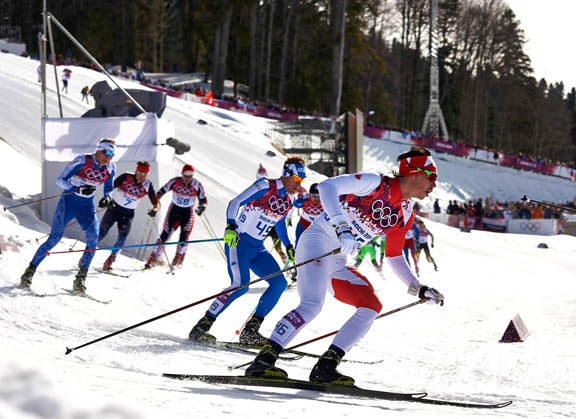
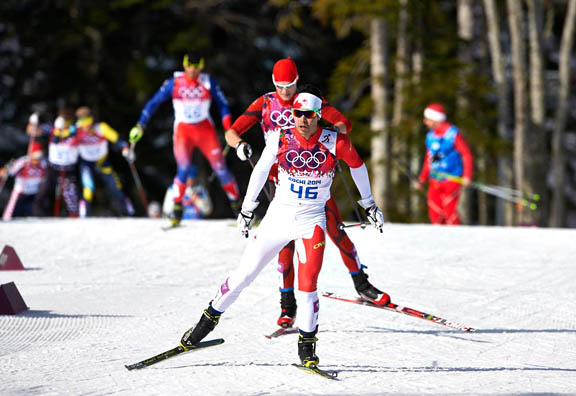
![(l-r) Noah Hoffman (USA), Martin Johnsrud Sundby (NOR), Jean Marc Gaillard (FRA), Maxim Vylegzhanin (RUS) [P] Nordic Focus](https://skitrax.com/wp-content/uploads/2014/02/Sundby-230214mf008.2.jpg)
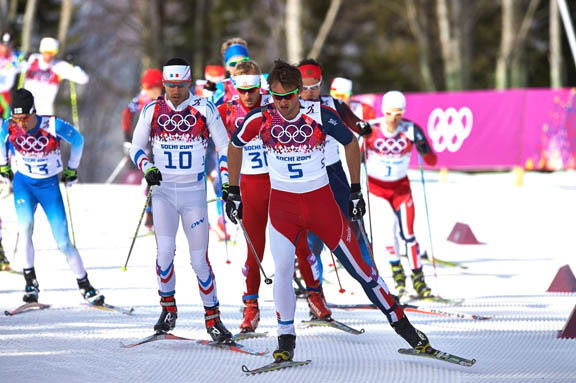
![(l-r) Maxim Vylegzhanin (RUS), Alexander Legkov (RUS), Ilia Chernousov (RUS) [P] Nordic Focus](https://skitrax.com/wp-content/uploads/2014/02/M-Podium-Russia-230214mf071.2.jpg)
![Alex Harvey (CAN) [P] Nordic Focus](https://skitrax.com/wp-content/uploads/2014/02/Harvey230214mf012.2.jpg)
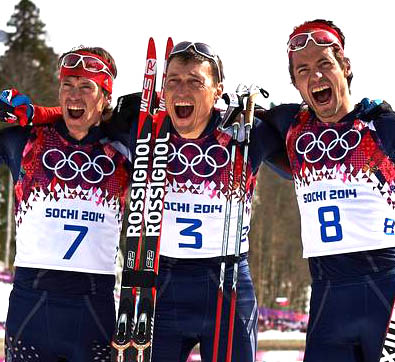
![(l-r) Maxim Vylegzhanin (RUS), Alexander Legkov (RUS), Ilia Chernousov (RUS). [P] NordicFocus](https://skitrax.com/wp-content/uploads/2014/02/Podium-230214mf076.2.jpg)
![(l-r) Maxim Vylegzhanin (RUS), Alexander Legkov (RUS), Ilia Chernousov (RUS). [P] NordicFocus](https://skitrax.com/wp-content/uploads/2014/02/M-Podium-Russia-230214mf071.3.jpg)
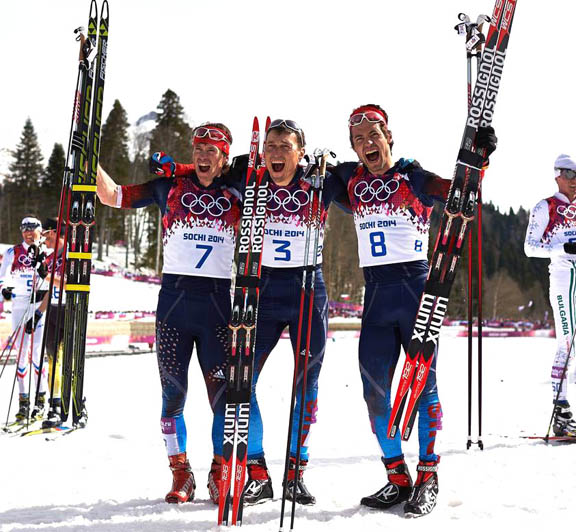
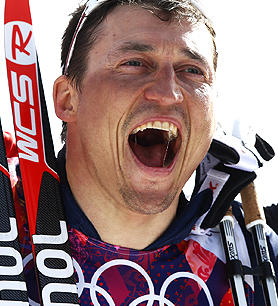
![USA’s Noah Hoffman ahead of eventual winner Alexander Legkov (RUS) [P] Nancie Battaglia](https://skitrax.com/wp-content/uploads/2014/02/NBxHoffman-1129c.jpg)
![Alex Harvey (CAN) in the pack [P] Nancie Battaglia](https://skitrax.com/wp-content/uploads/2014/02/NBxHarvey-0944c.jpg)
![Ivan Babikov [P] Nancie Battaglia](https://skitrax.com/wp-content/uploads/2014/02/NBxBabikov-1269c.jpg)
![Ivan Babikov (CAN) [P] Nancie Battaglia](https://skitrax.com/wp-content/uploads/2014/02/NBxBabikov-1479c.jpg)
![Kris Freeman (USA) [P] Nancie Battaglia](https://skitrax.com/wp-content/uploads/2014/02/NBxFreeman-1278c.jpg)
![Jesse Cockney (CAN) [P] Nancie Battaglia](https://skitrax.com/wp-content/uploads/2014/02/NBxCockney-1063c.jpg)
![Brian Gregg (USA) [P] Nancie Battaglia](https://skitrax.com/wp-content/uploads/2014/02/NBxGregg-1370c.jpg)
![Alexander Legkov kicks over the finish line to win. [P] Nancie Battaglia](https://skitrax.com/wp-content/uploads/2014/02/NBxLegkov-1442c.jpg)
![Graeme Killick (CAN) [P] Nancie Battaglia](https://skitrax.com/wp-content/uploads/2014/02/NBxKillick-1348c.jpg)
![Noah Hoffman (USA) follows Maxim Vylegzhanin (RUS) [P] Nancie Battaglia](https://skitrax.com/wp-content/uploads/2014/02/NBxHoffman-1260c.jpg)
![Alex Harvey (CAN) [P] Nancie Battaglia](https://skitrax.com/wp-content/uploads/2014/02/NBxHarvey-1464c.jpg)
![USA’s Noah Hoffman [P] Nancie Battaglia](https://skitrax.com/wp-content/uploads/2014/02/NBxHoffman-1197c.jpg)
![Men's podium [P] Worldloppet](http://skitrax.com/wp-content/uploads/2014/02/Mens-podium.jpg)
![Women's podium [P] Worldloppet](http://skitrax.com/wp-content/uploads/2014/02/W-podium.jpg)
![(l) Tom Reichelt (GER) and Antonella Confortolla (ITA) [P] Worldloppet](http://skitrax.com/wp-content/uploads/2014/02/Antonella-Confortolla-ITA-and-Tom-Reichelt-GER.jpg)
![Team Russia (l-r) Malyshko, Ustyugov, Shipulin, Volkov [P] NordicFocus](http://skitrax.com/wp-content/uploads/2014/02/Russian-Relay.2-2014-02-22_b34b4dcff09d91e.jpg_image_scaler_300x0.jpg)
![JP Le Guellec (CAN) [P] Nancie Battaglia](http://skitrax.com/wp-content/uploads/2014/02/NBXleGuellec-0275c.2.jpg)
![Lowell Bailey (USA) [P] Nancie Battaglia](http://skitrax.com/wp-content/uploads/2014/02/NBxBailey-0327c.2.jpg)
![Canada's Brendan Green [P] Nancie Battaglia](http://skitrax.com/wp-content/uploads/2014/02/NBxGreen-0465c.2.jpg)
![Nathan Smith (CAN) [P] Nancie Battaglia](http://skitrax.com/wp-content/uploads/2014/02/NBxSmith-0736c.2.jpg)
![USA’s Sean Doherty [P] Nancie Battaglia](https://skitrax.com/wp-content/uploads/2014/02/NBxDoherty-0522c.2.jpg)
![Canada’s Brendan Green [P] Nancie Battaglia](https://skitrax.com/wp-content/uploads/2014/02/NBxGreen-0465c.2.jpg)
![Scott Perras (CAN) [P] Nancie Battaglia](https://skitrax.com/wp-content/uploads/2014/02/NBxPerras-0376c.2.jpg)
![Nathan Smith (CAN) [P] Nancie Battaglia](https://skitrax.com/wp-content/uploads/2014/02/NBxSmith-0736c.2.jpg)
![JP Le Guellec (CAN) [P] Nancie Battaglia](https://skitrax.com/wp-content/uploads/2014/02/NBXleGuellec-0275c.2.jpg)
![Lowell Bailey (USA) [P] Nancie Battaglia](https://skitrax.com/wp-content/uploads/2014/02/NBxBailey-0327c.2.jpg)
![Leif Nordgren (USA) [P] Nancie Battaglia](https://skitrax.com/wp-content/uploads/2014/02/NBxNordgren-0644c.2.jpg)
![Russell Currier (USA) [P] Nancie Battaglia](https://skitrax.com/wp-content/uploads/2014/02/NBxCurrier-0363c.2.jpg)
![Russell Currier (USA) [P] Nancie Battaglia](https://skitrax.com/wp-content/uploads/2014/02/NBxCurrier-0406c.2.jpg)
![Team Russia (l-r_ Malyshko, Ustyugov, Shipulin, Volkov [P] NordicFocus](https://skitrax.com/wp-content/uploads/2014/02/Russian-Relay.2-2014-02-22_b34b4dcff09d91e.jpg_image_scaler_300x0.jpg)
![Team Russia (l-r_ Malyshko, Ustyugov, Shipulin, Volkov [P] NordicFocus](https://skitrax.com/wp-content/uploads/2014/02/Russia-2014-02-23-at-8.21.11-AM.jpg)
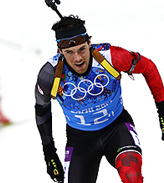
![Final podium (l-r) Johaug 2nd, Bjoergen 1st, Stoermer Steira 3rd [P] Nordic Focus](http://skitrax.com/wp-content/uploads/2014/02/Podium-220214mf043.2.jpg)
![Liz Stephen (USA) [P] Nancie Battaglia](http://skitrax.com/wp-content/uploads/2014/02/NBxStephen-0171c.2.jpg)
![Start of the women's 30km FR... [P] Nancie Battaglia](http://skitrax.com/wp-content/uploads/2014/02/NBxLadies30K-9447c.2.jpg)
![The three leaders [P] Nordic Focus The three leaders [P] Nordic Focus](http://skitrax.com/wp-content/uploads/2014/02/Johaug-Bjoergen-Steira-220214al009.2.jpg)
![Kerttu Niskanen leads the chasers [P] Nordic Focus](http://skitrax.com/wp-content/uploads/2014/02/niskanen220214al021.2.jpg)
![Kikkan Randall (USA) at the finish [P] Nordic Focus](http://skitrax.com/wp-content/uploads/2014/02/Randall-220214mf035.2.jpg)
![Canada's Amada Ammar is followed by teammate Brittany Webster [P] Nancie Battaglia](http://skitrax.com/wp-content/uploads/2014/02/NBxAmmar-9632c.2.jpg)
![Kikkan Randall (USA) at the finish [P] Nordic Focus](https://skitrax.com/wp-content/uploads/2014/02/Randall-220214mf035.2.jpg)
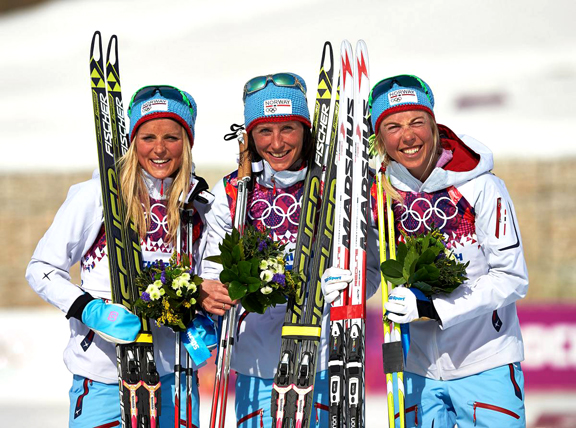
![Kerttu Niskanen [P] Nordic Focus](https://skitrax.com/wp-content/uploads/2014/02/niskanen220214al021.2.jpg)
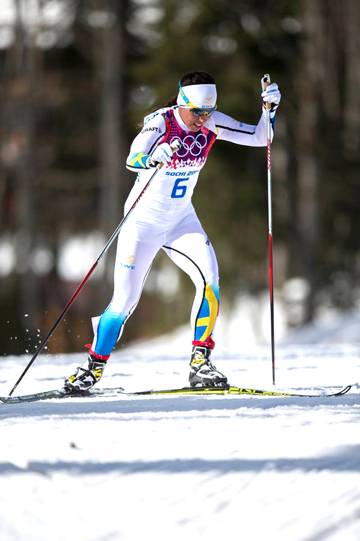
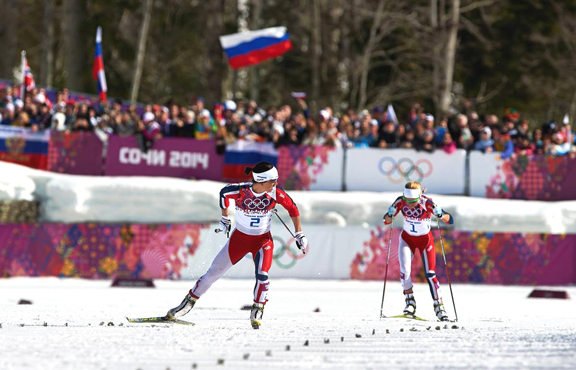
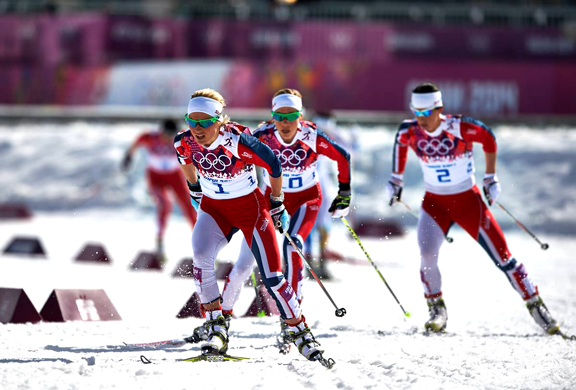
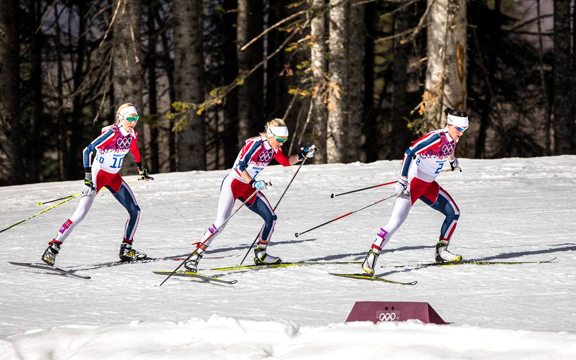
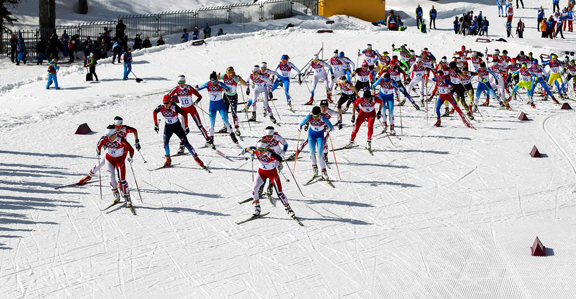
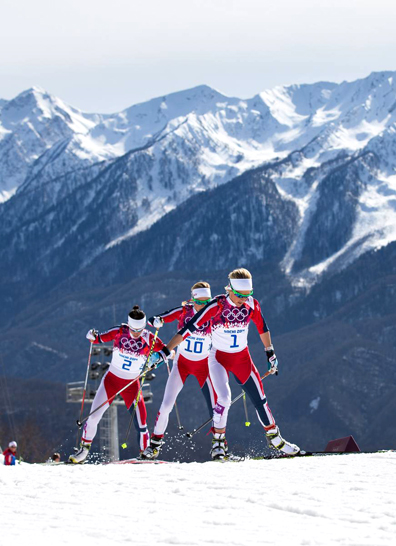
![XXII. Olympic Winter Games Sochi 2014, cross-country, 30km women, Sochi (RUS) [P] Nordic Focus](https://skitrax.com/wp-content/uploads/2014/02/Bjoergen220214mf034.2.jpg)
![Final podium (l-r) Johaug 2nd, Bjoergen 1st, Stoermer Steira 3rd [P] Nordic Focus](https://skitrax.com/wp-content/uploads/2014/02/Podium-220214mf043.2.jpg)
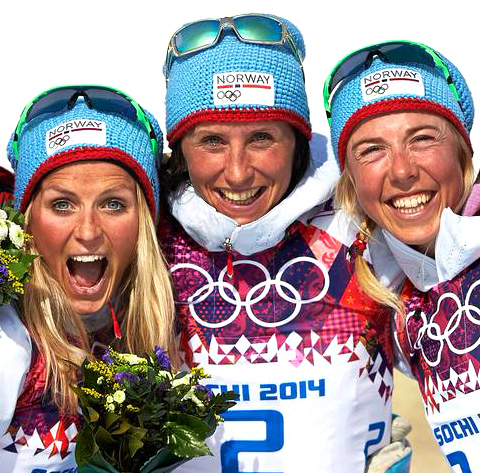
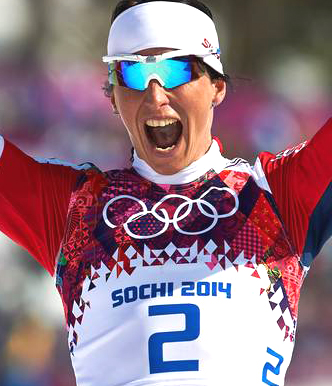
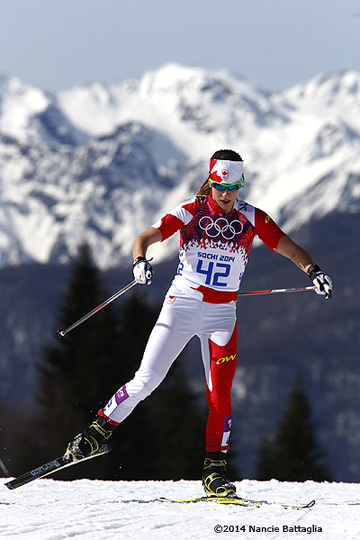
![Canada’s Amada Ammar is followed by teammate Brittany Webster [P] Nancie Battaglia](https://skitrax.com/wp-content/uploads/2014/02/NBxAmmar-9632c.2.jpg)
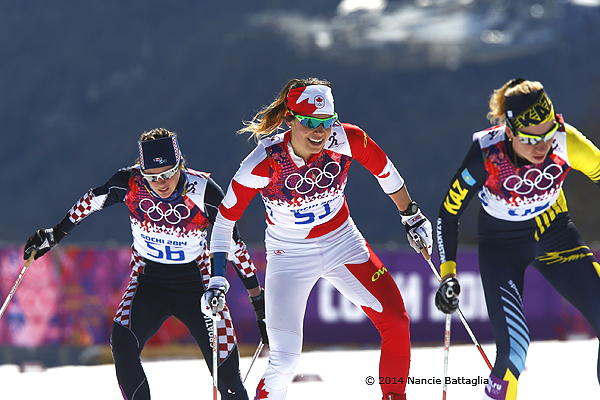
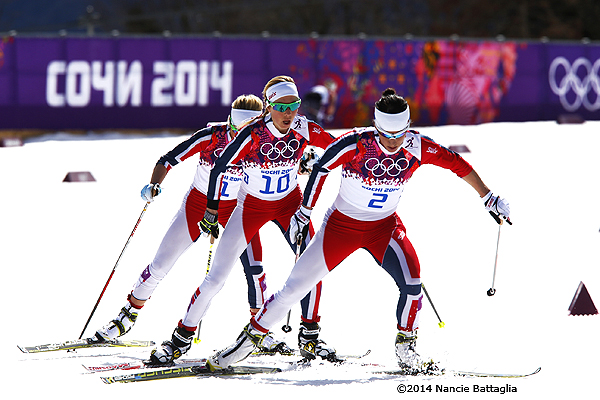
![Start… [P] Nancie Battaglia](https://skitrax.com/wp-content/uploads/2014/02/NBxLadies30K-9447c.2.jpg)
![Liz Stephen [P] Nancie Battaglia](https://skitrax.com/wp-content/uploads/2014/02/NBxStephen-0171c.2.jpg)
![Germany's Evi Sachenbacher-Stehle (#7) in the Mixed Relay. [P] Nancie Battaglia](http://skitrax.com/wp-content/uploads/2014/02/NBxEviSS-7085c.2.jpg)
![Sachenbacher-Stehle was sidelined at the 2006 Torino Games for a high Hemoglobin level [P] Nancie Battaglia](http://skitrax.com/wp-content/uploads/2014/02/NBxEviSS-0077c.2.jpg)